
A gorgeous little book. The summer nonfiction workshop I‘m taking starts tomorrow and we will be discussing this book on Friday.
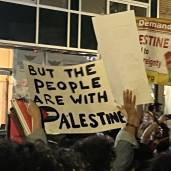

A gorgeous little book. The summer nonfiction workshop I‘m taking starts tomorrow and we will be discussing this book on Friday.
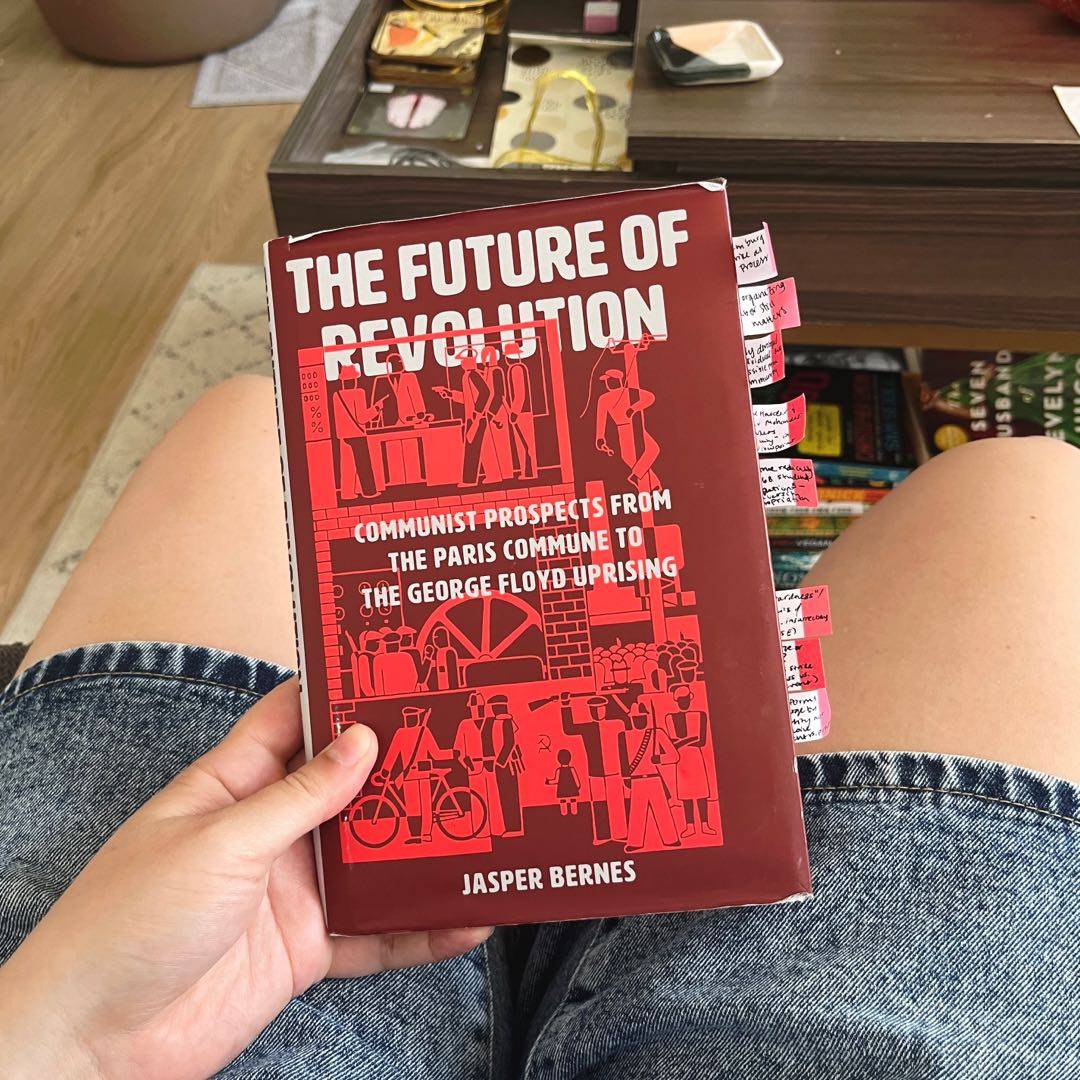
Jasper Bernes is definitely one of the smartest & most incisive writers on communism & revolution in our times. This was excellent & lived up to the hype. I am curious to read some of the recent responses he‘s shared that engage critically with the second chapter!
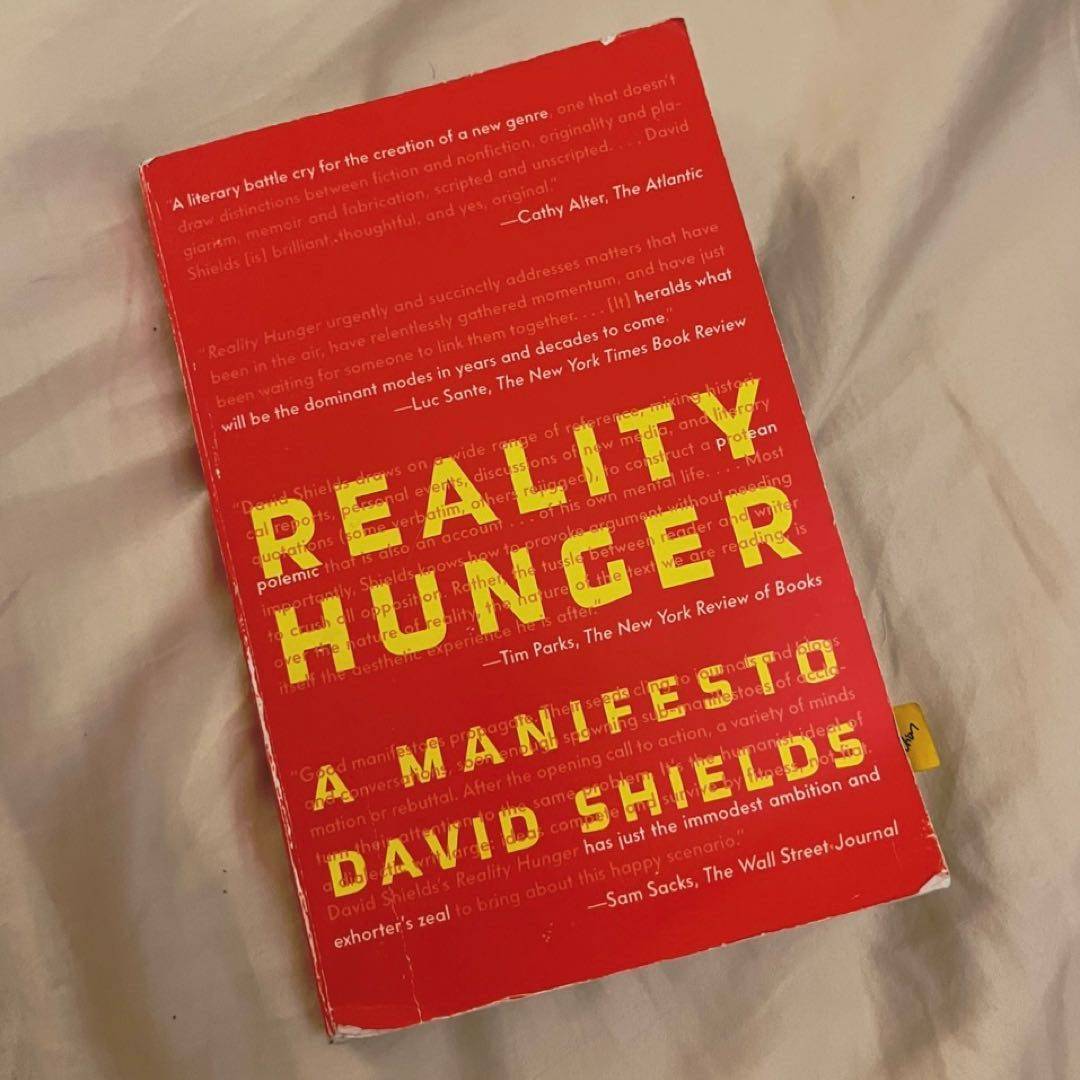
I got accepted into a summer nonfiction writing workshop and this is our “textbook”. I basically find Shields‘ worldview naïve; his proclamations in favor of collage & “mixing”, and against citation, are pretty funny in light of GenAI stealing the work of humans & shitting out assemblage. But I liked some of the stuff about the generic blurring of fiction & nonfiction and the task of the memoirist. ¯\_(ツ)_/¯
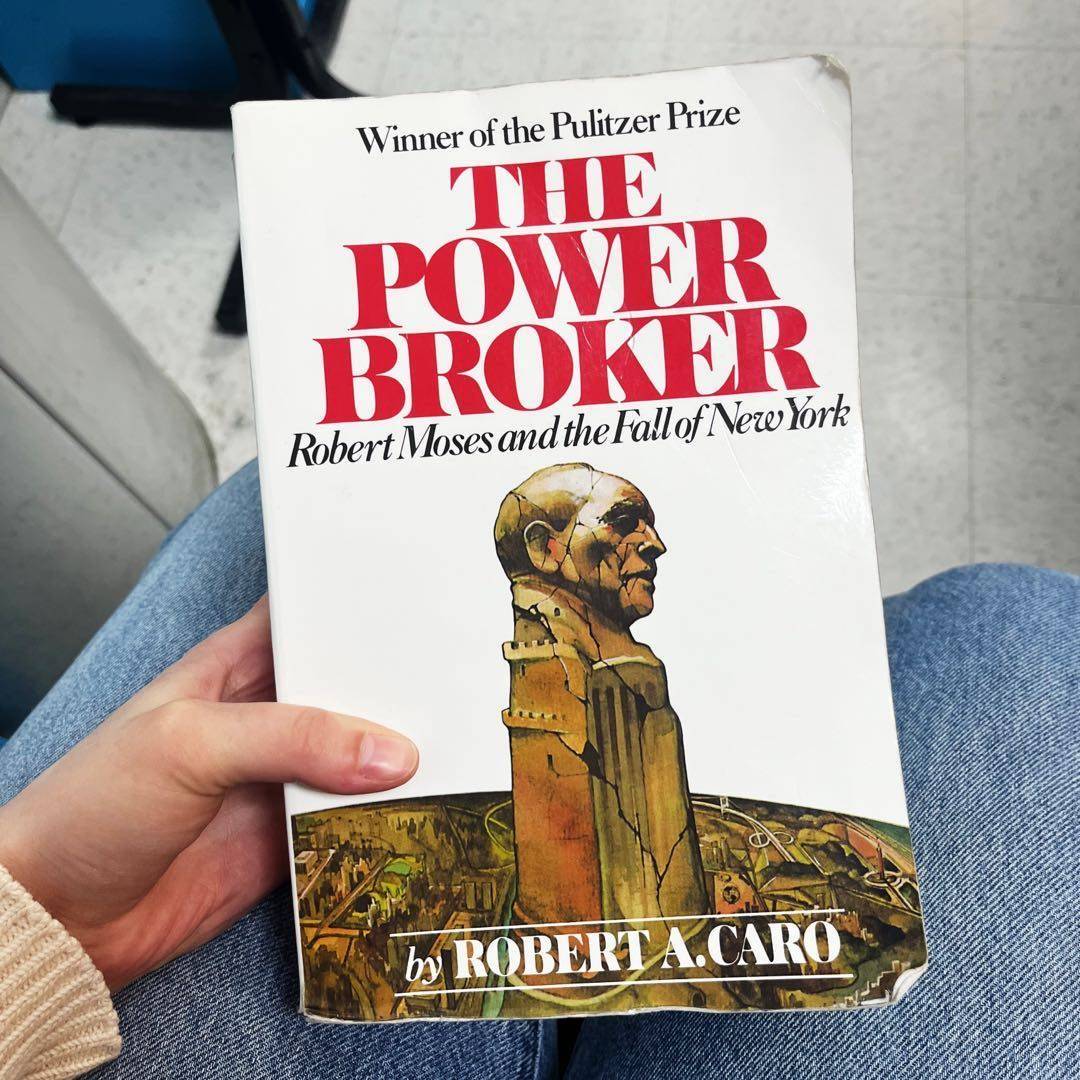
3 months and 1,162 pages later, I‘m finally done with The Power Broker! Totally lives up to its reputation as one of the greatest biographies of all time. Caro‘s meticulous attention to detail and captivating narrative style make this a true epic. Grateful to have learned so much about the political history & urban geography of the city I now call home. 🌟5/5🌟
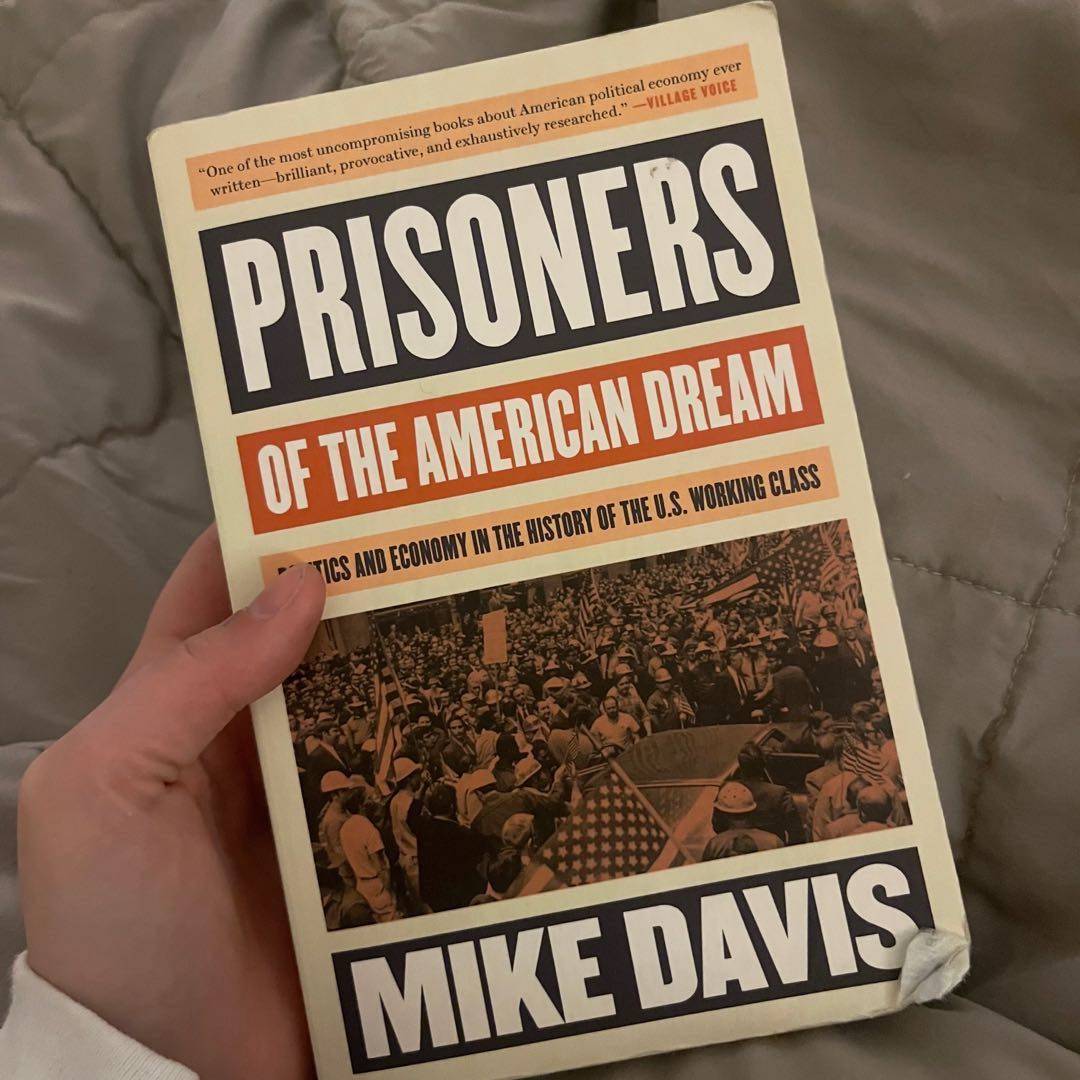
Feeling proud of myself 🤓 Revisited this after 5 years. (It was one of the 1st books I ever logged here!) My first go-around was extremely challenging & most of Davis‘s analysis went over my head. But since then I have learned a lot about Marxism & the labor movement, & I‘m happy to report that I was able to follow the argument this time around! Can confirm it is a work of true genius 🤯
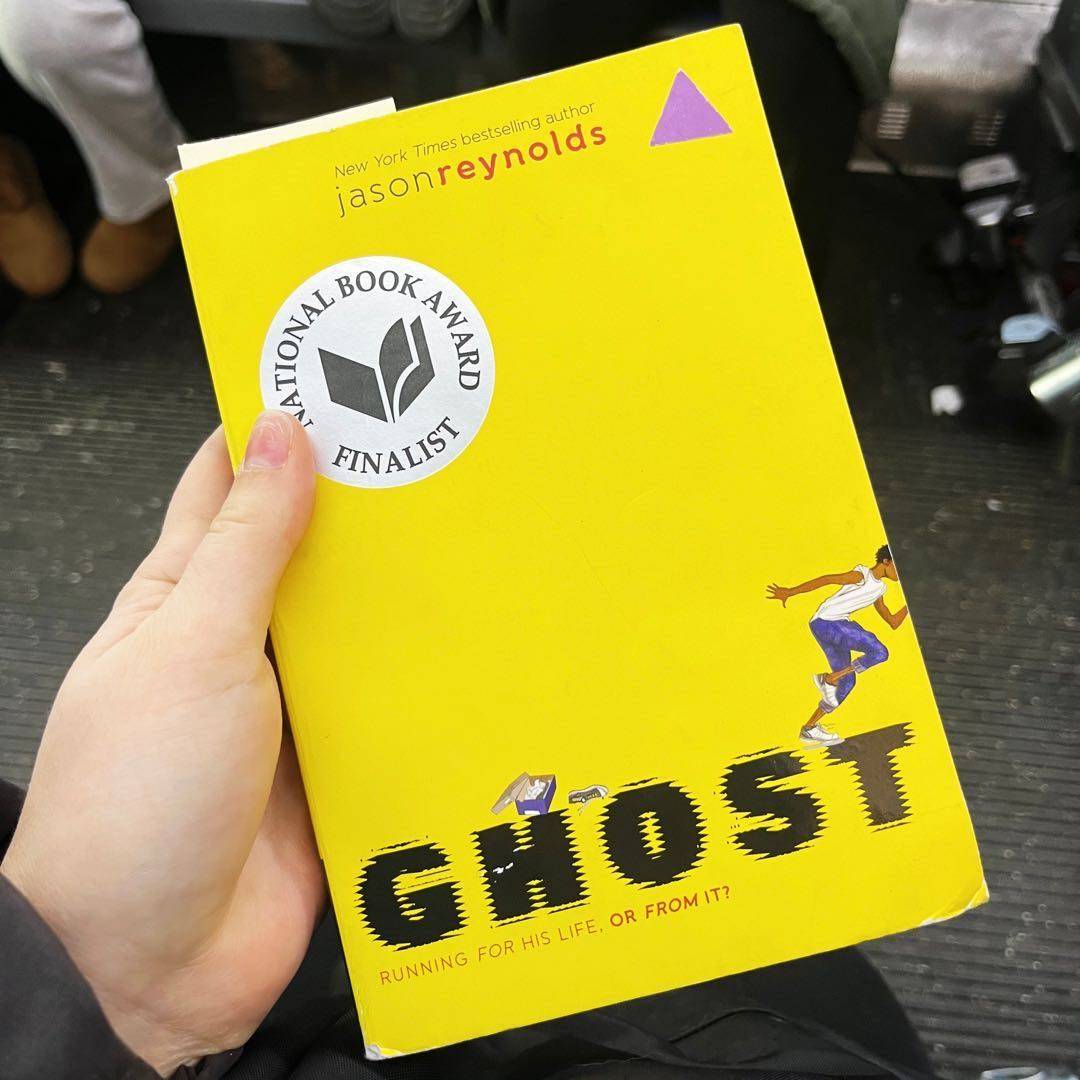
Some of my 6th graders have been pestering me to read this book. It was fine lol. The story was a bit predictable, the characters somewhat two-dimensional imo, but hey— it‘s a book written for kids, so lemme not be too harsh. Ultimately I think it‘s a net positive ofc that my students have access to culturally relevant YA lit, & I am ecstatic they love reading so much that they want to talk about & share their fav books with their teachers :)
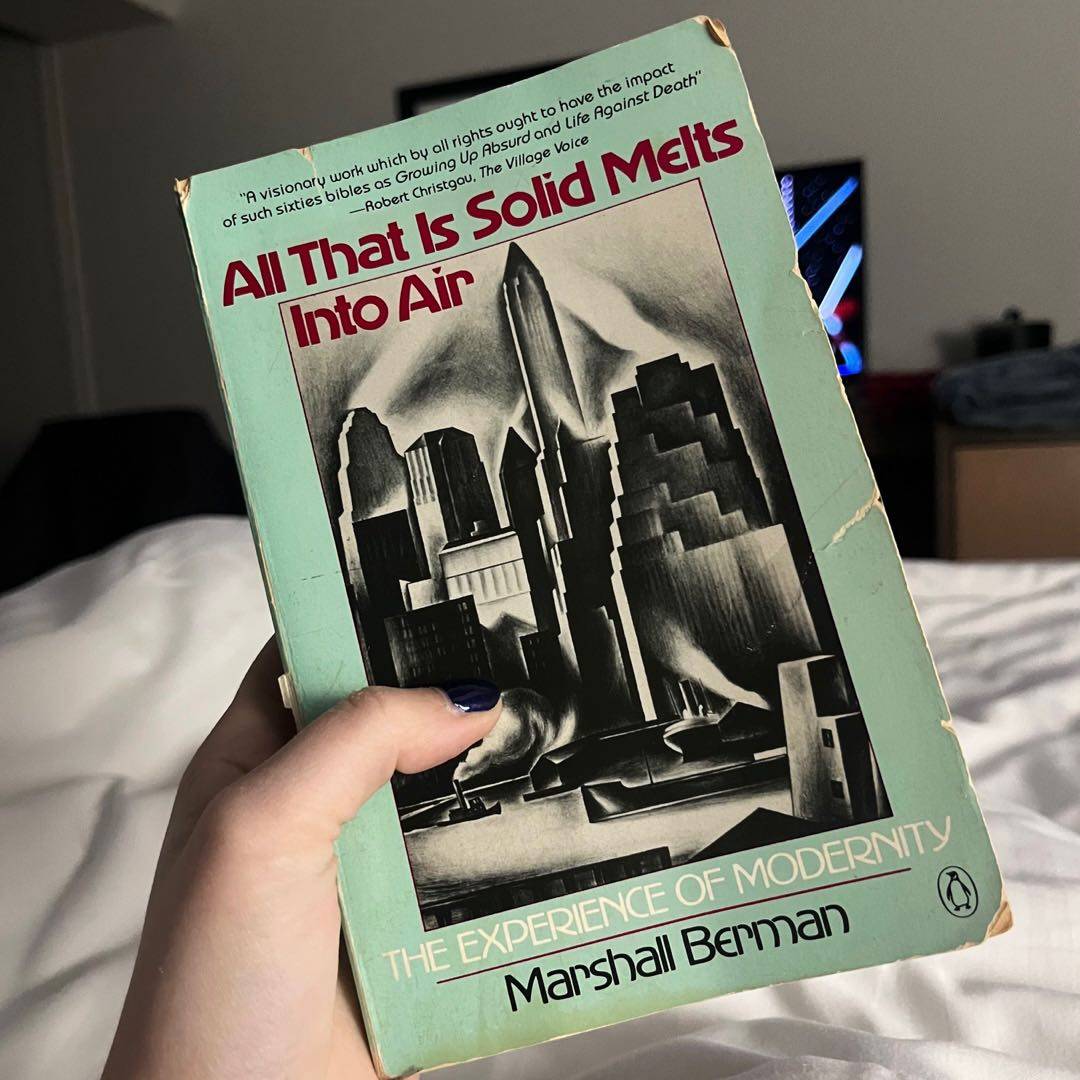
“All fixed, fast-frozen relationships, with their train of venerable ideas and opinions, are swept away, all new-formed ones become obsolete before they can ossify. All that is solid melts into air, all that is holy is profaned, and men at last are forced to face with sober senses the real conditions of their lives and their relations with their fellow men.” (The Communist Manifesto)
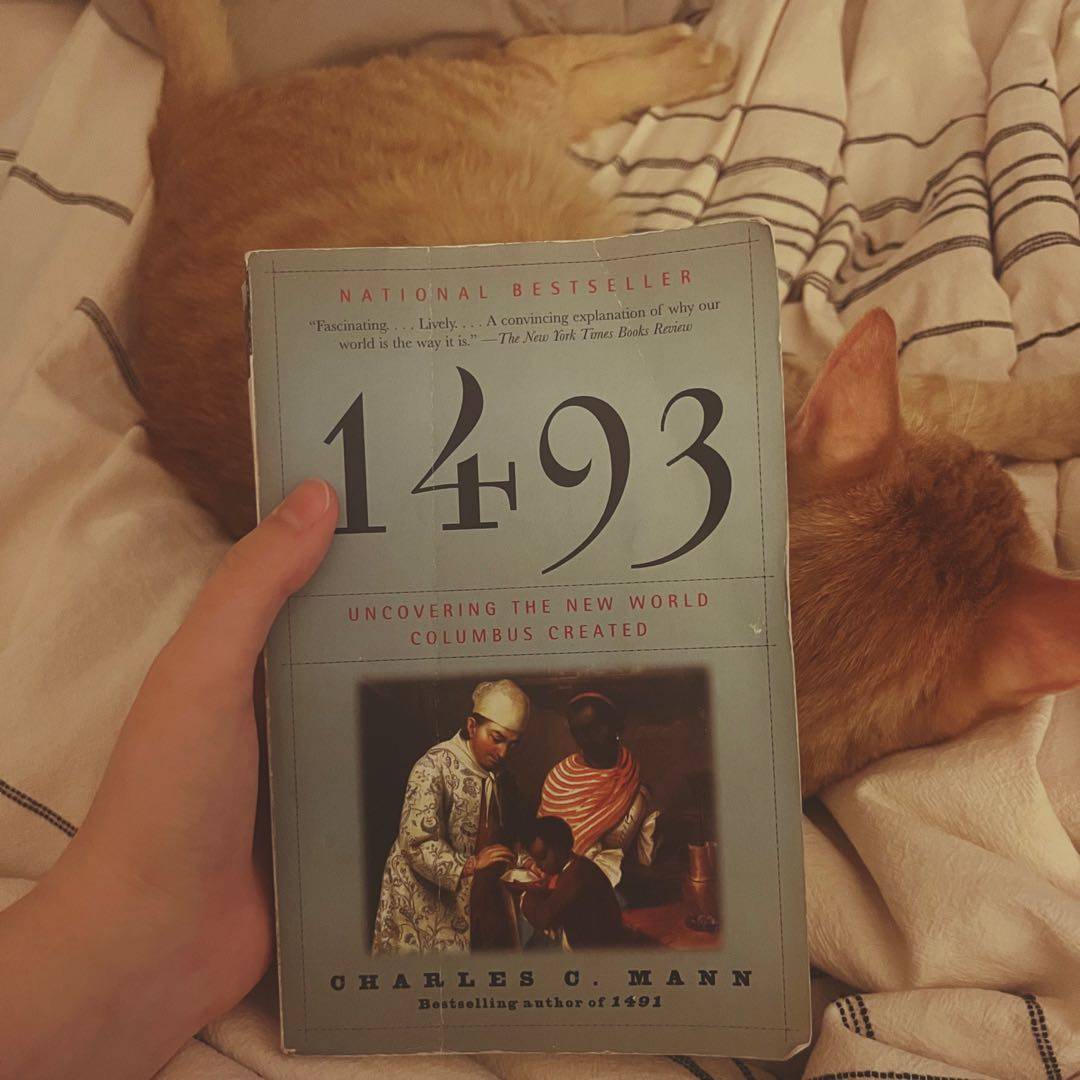
Sooo disappointed by this book 😭 I loved 1491 so I was hoping to love this too, but despite all the extremely interesting historical research, he does not have the range to discuss globalization… like this book DRIPS with neoliberal ideology. To him, the terms of the debate are free trade or no trade (fair trade is not an option) so naturally the answer is free trade (that is, capitalism) because people gotta have their commodities, of course 😒
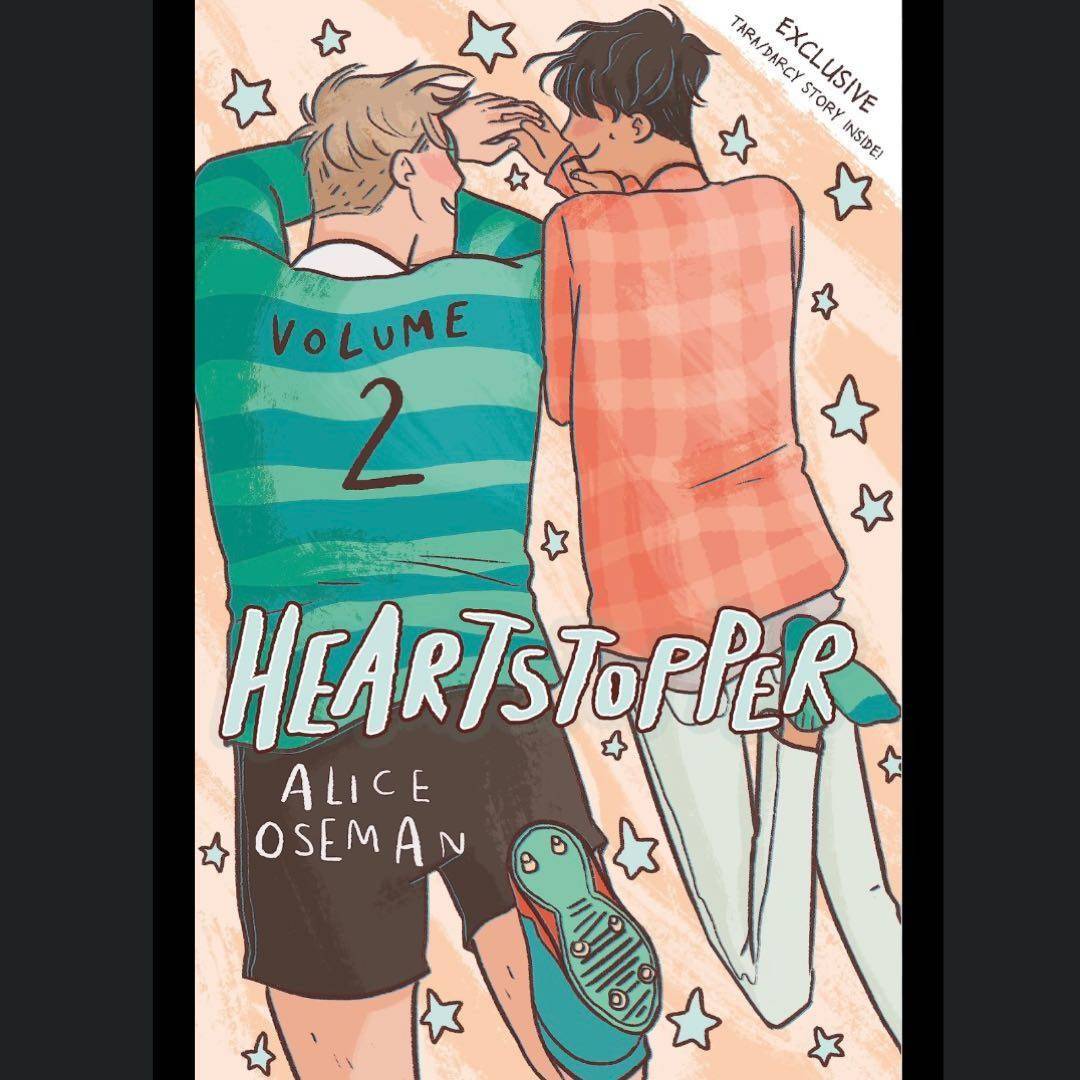
Forgot to post but I‘ve been taking reading recommendations from my 6th graders and one of them lent me her copy of Heartstopper Vol. 2 😭 I the read the whole thing during one of my lunch periods before break. (No, I did not read Vol. 1 lol) In return, I lent her a copy of Snapdragon, another graphic novel w/ LGBTQ+ characters, & she messaged me on Google Classroom that she‘s loving it so far 🥹
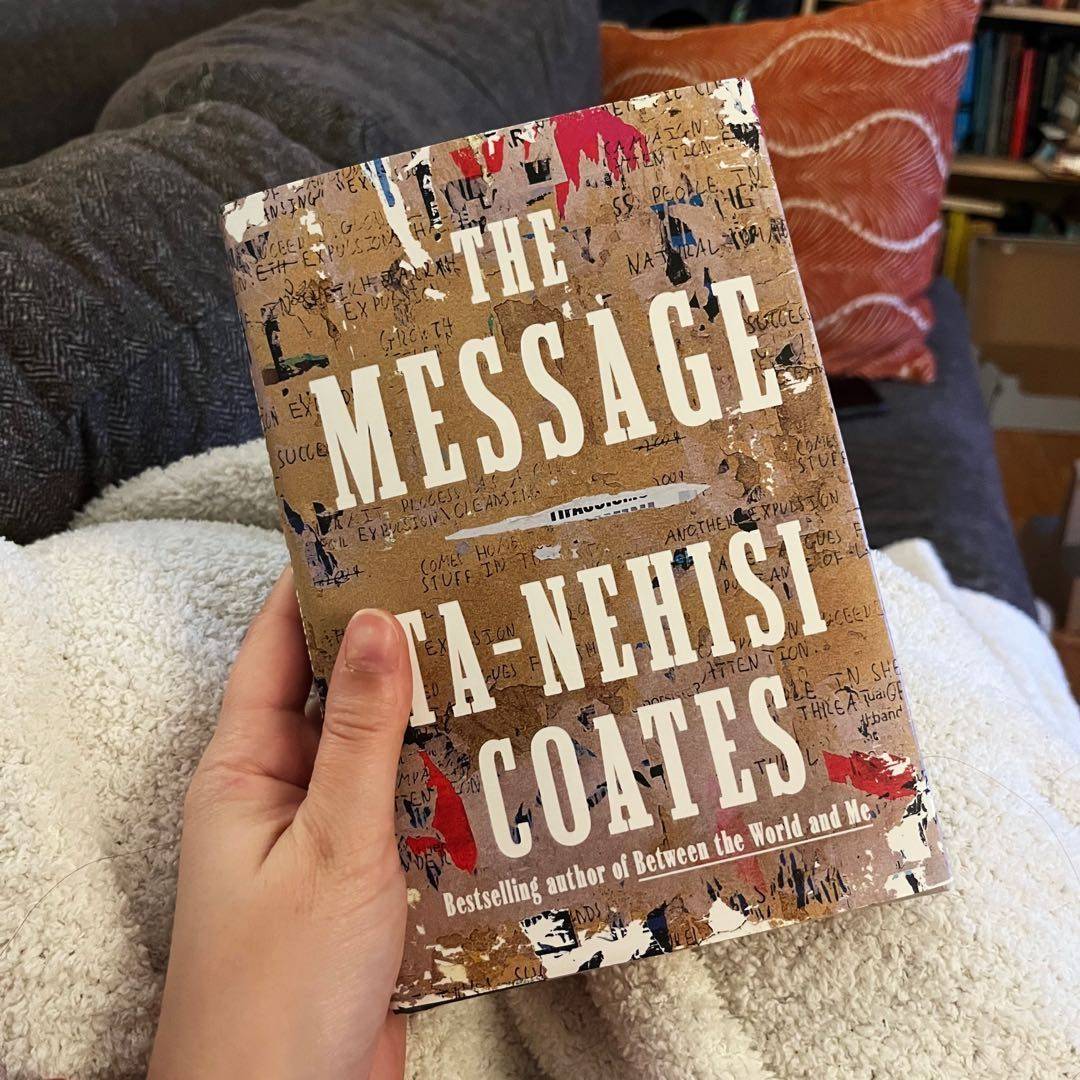
Don‘t walk, run to get this book! Since Coates has been shaking the table with his discursive intervention on Palestine, that was the section I was most interested to read… but in the end I was particularly floored by the section on education & the war on “critical race theory.” If I taught HS English, I would def assign this book!
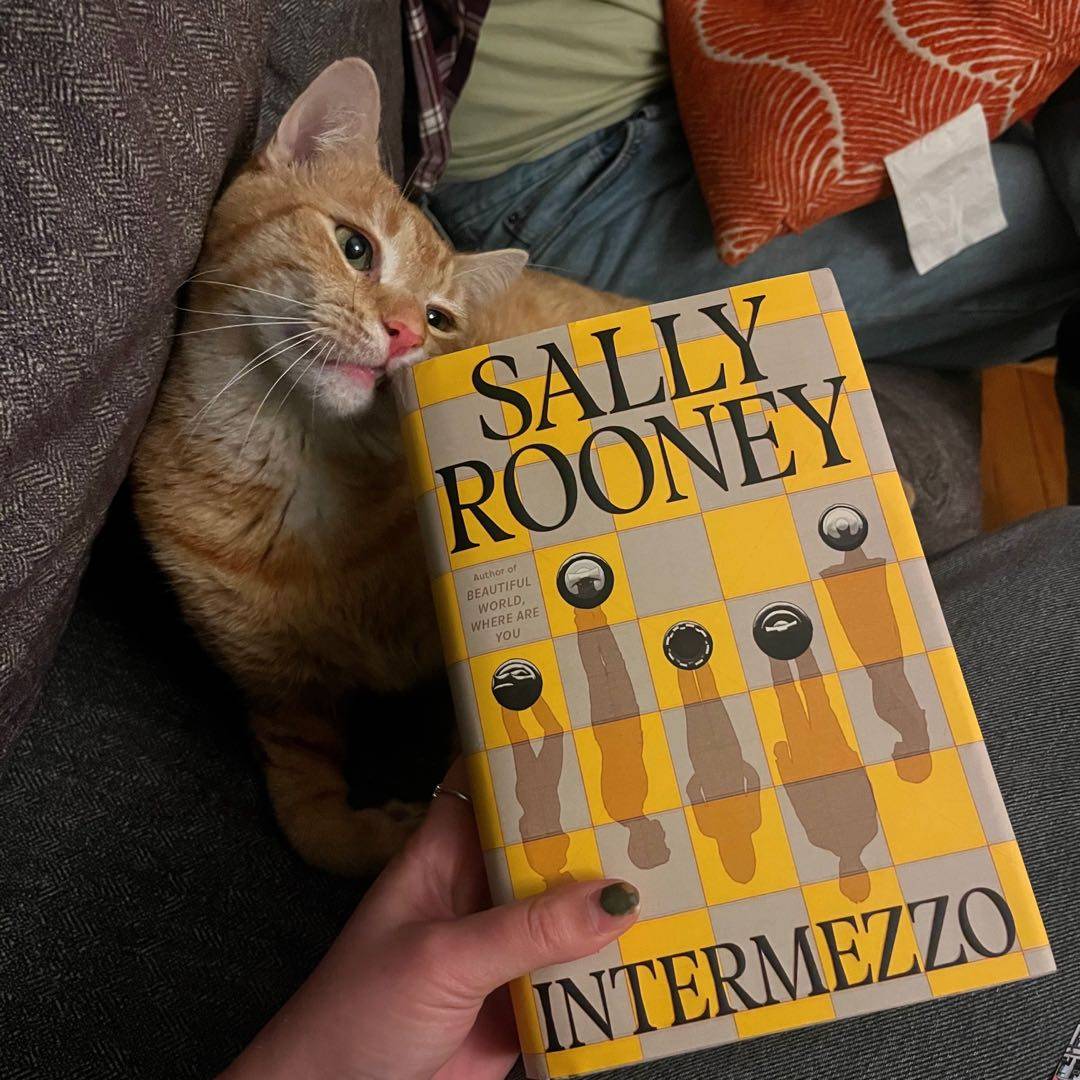
By god, Sally Rooney, you‘ve done it again. Our best living fiction writer idc idc!! (Photo taken seconds before Theodore tried to take a chomp of out the book lol)
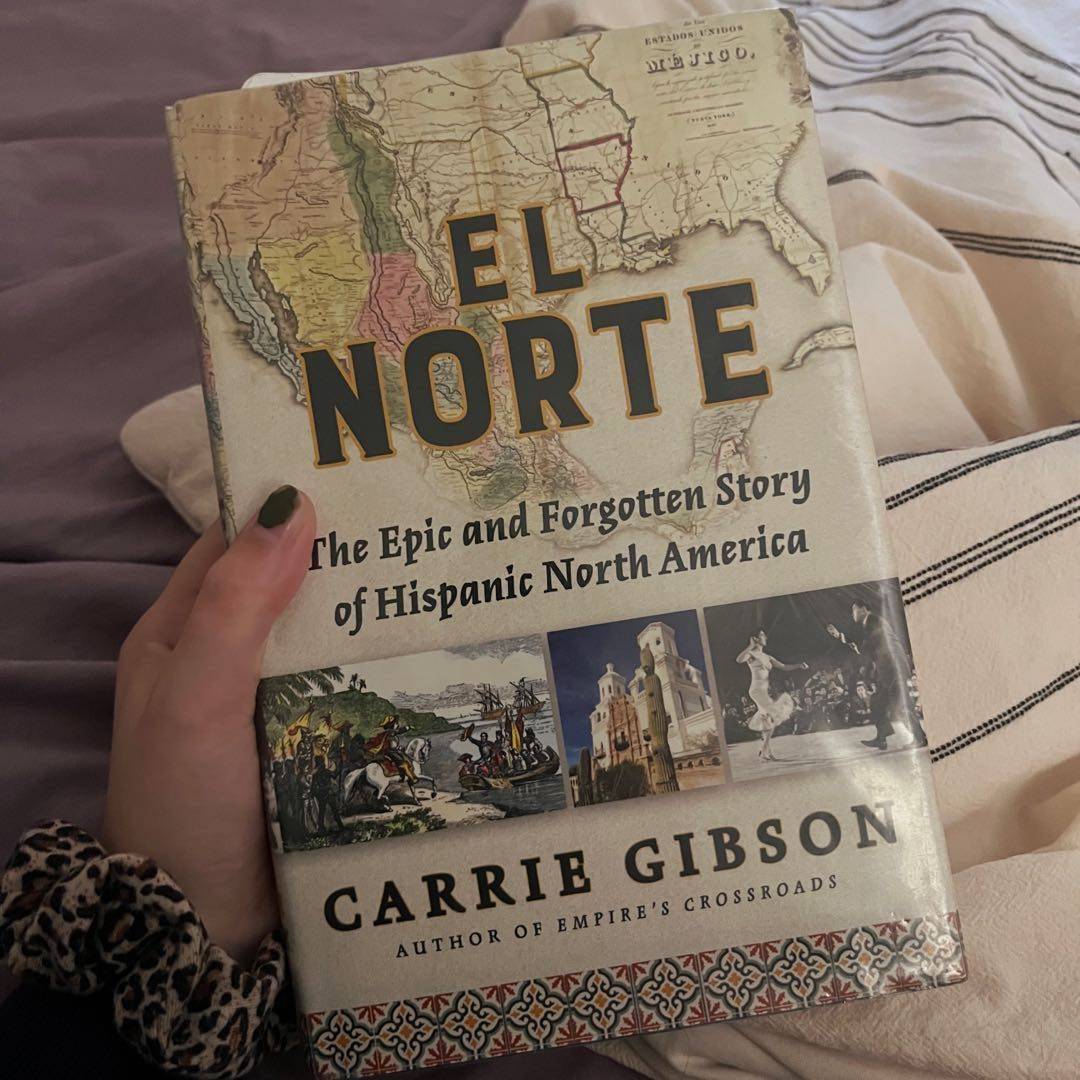
I read the whole thing b/c there was important & interesting information, but this author did not really have the range to write this book lol. She has a college freshman‘s analysis of concepts like race, class & nationalism, and she chooses to write from the perspective of empires and states instead of a “people‘s history”… plus the chapter naming convention barely makes sense 😒 Ambitious but ultimately pretty superficial.
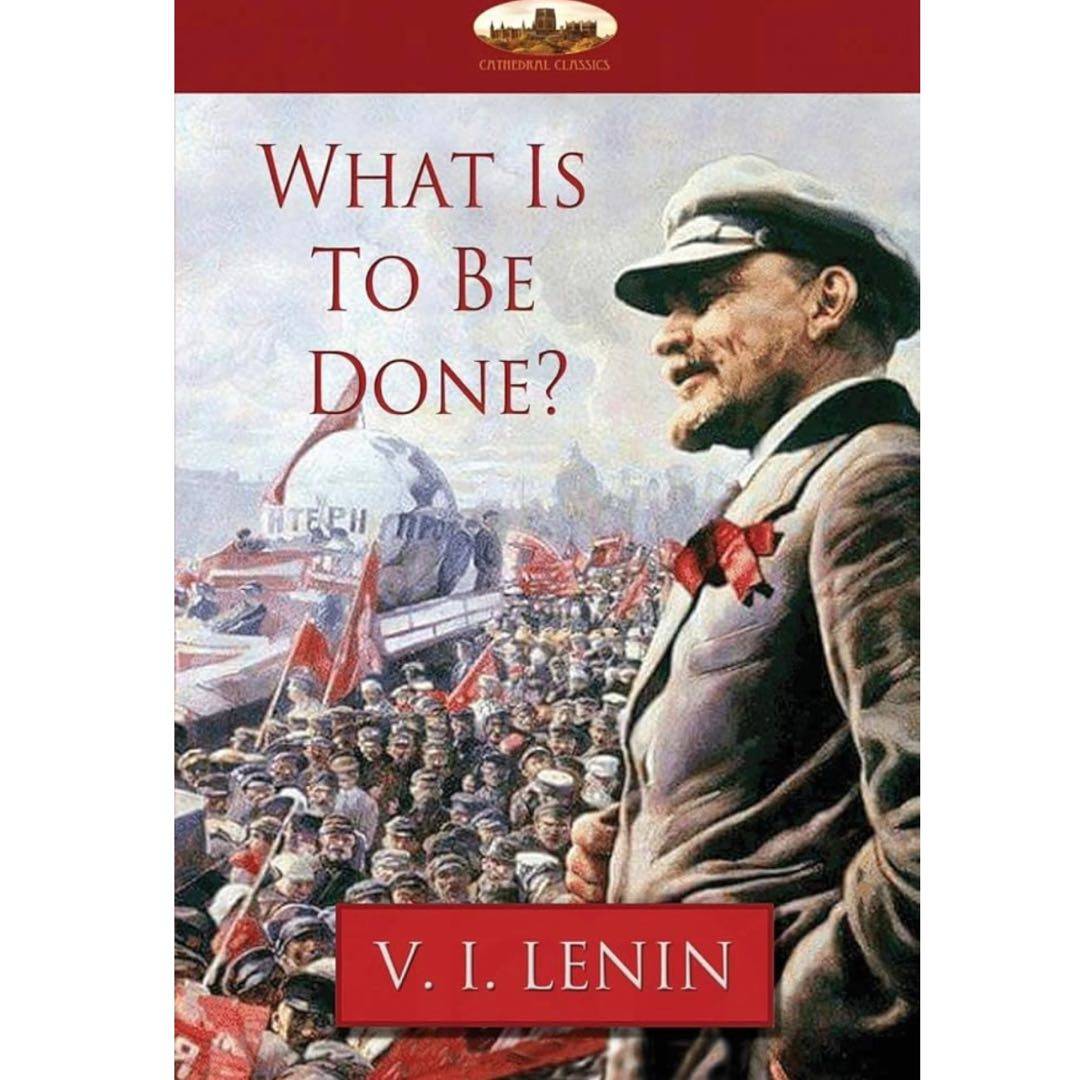
(2/2) Finally read this banger. Chapters 2 & 4 were on the additional course readings list for the CLR James seminar, but I decided to push through the whole thing since it was short enough & such a seminal revolutionary text.
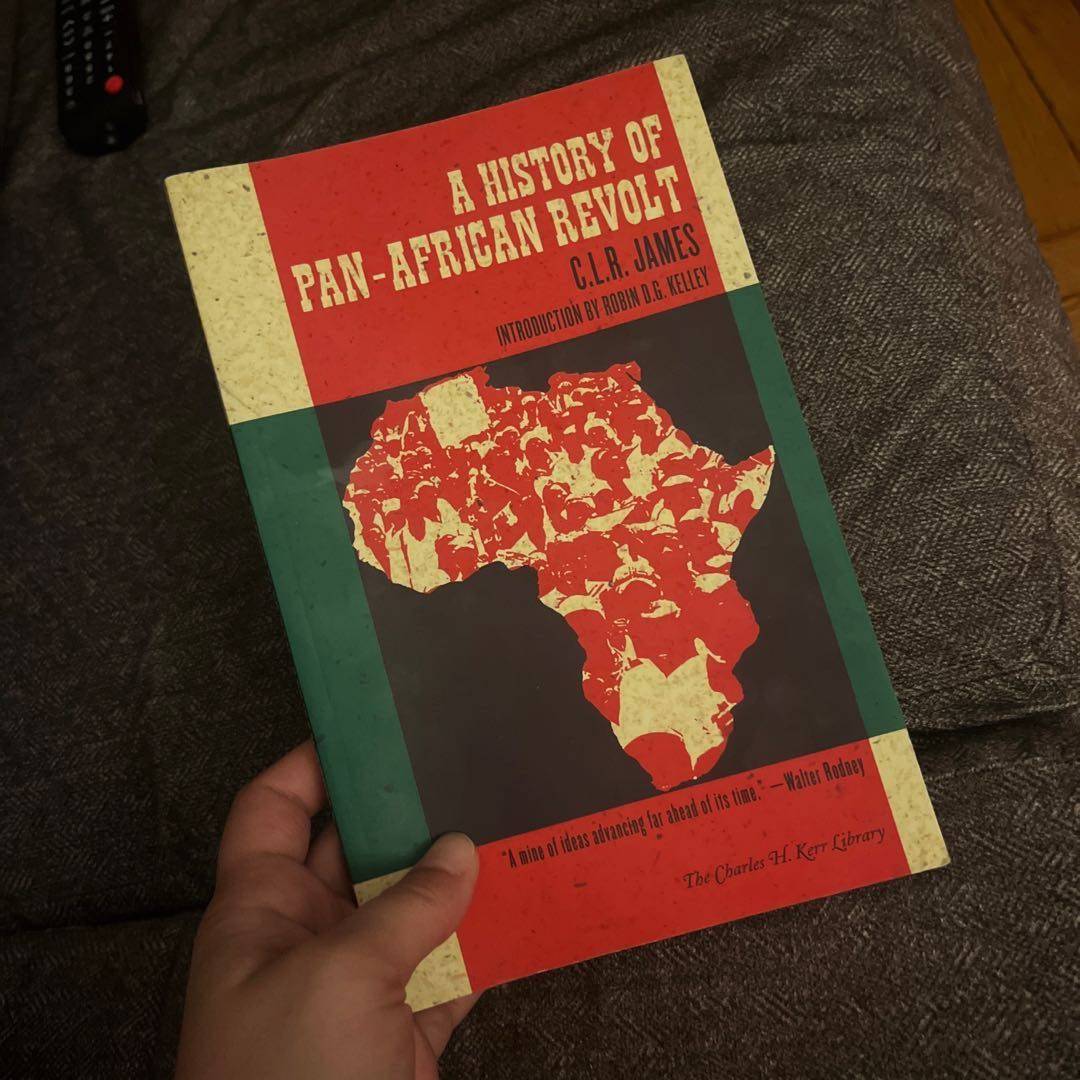
(1/2) Oops. Just completely forgot to post about the last two books I read lol. Been completely swept up in the new school year!
My last read of the summer. I figured it was short enough to squeeze in before school started & would be nice to knock out before I started the September seminar on CLR James that I‘m taking with the Brooklyn Institute for Social Research! 🙂
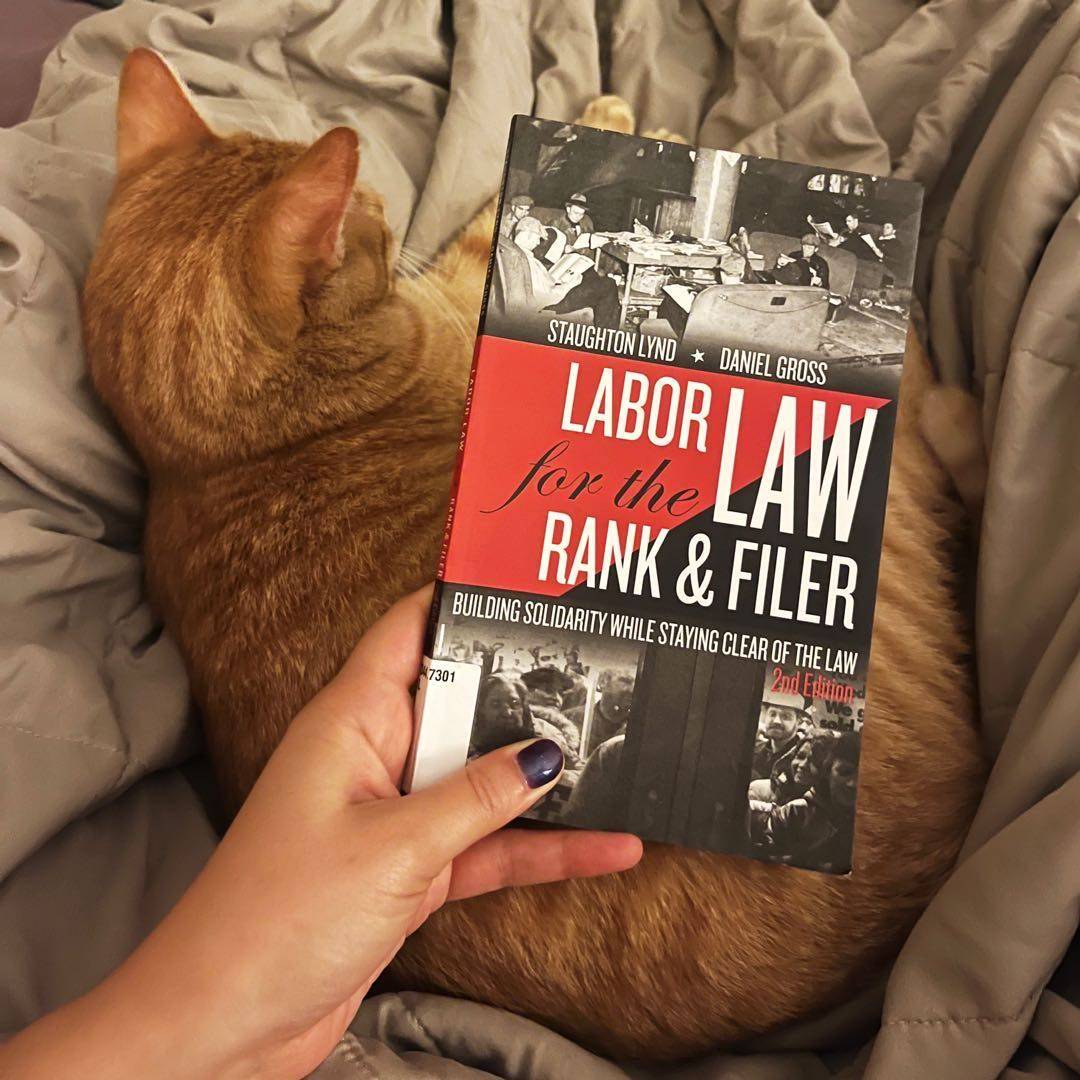
“…In a solidarity union, the worker shares his or her grievance with a committee of co-workers. They decide together on a course of direct action to right the wrong, which the workers will lead. The workers thereby harness their own power and creativity rather than depending on ‘professionals.‘ Business unions sometimes say to members, ‘You are the union.‘ In a solidarity union, that proposition is true.”
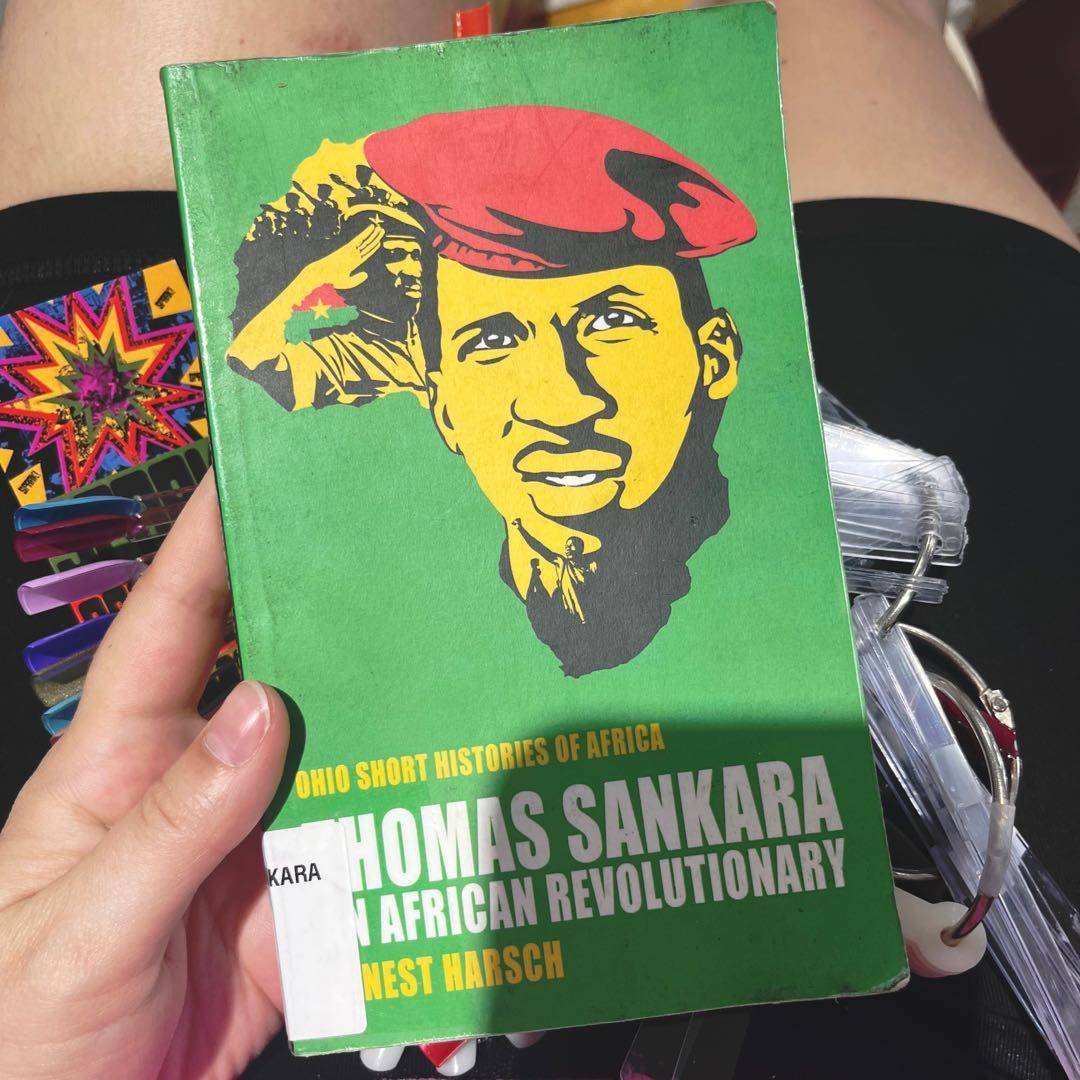
3rd NYPL checkout = ✅ A comprehensive little book about a revolutionary giant who made enormous contributions to the struggle for African independence, unity and socialism.
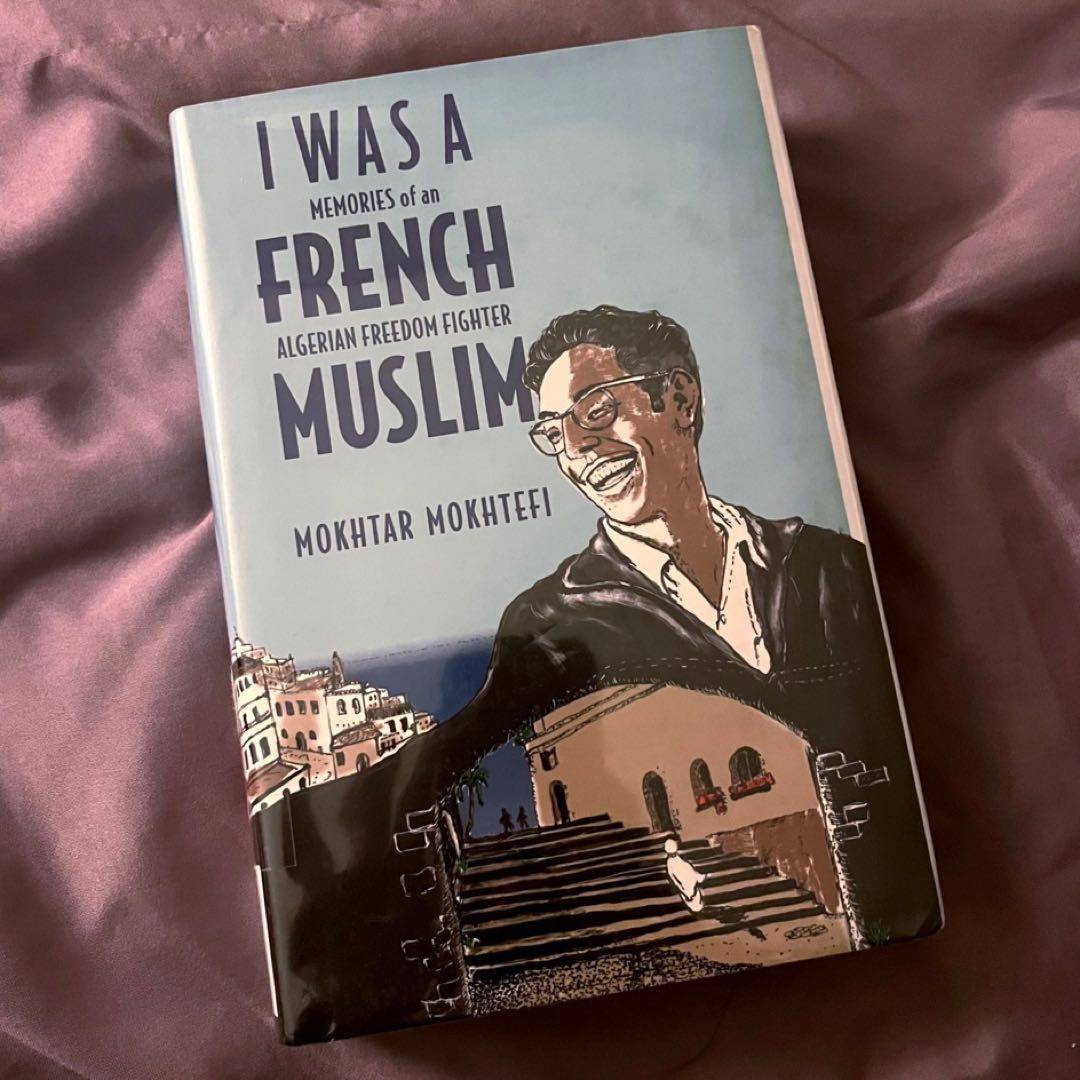
Second NYPL check out = ✅ Really easy, conversational read. A few years ago I read the autobiography of his wife, Elaine Mokhtefi, and I feel that it would be a great experience to read them back-to-back, as his memoir focuses on his life leading up to and through the Algerian Independence War, whereas hers is about her experience after the revolution, working for the government in independent Algeria.
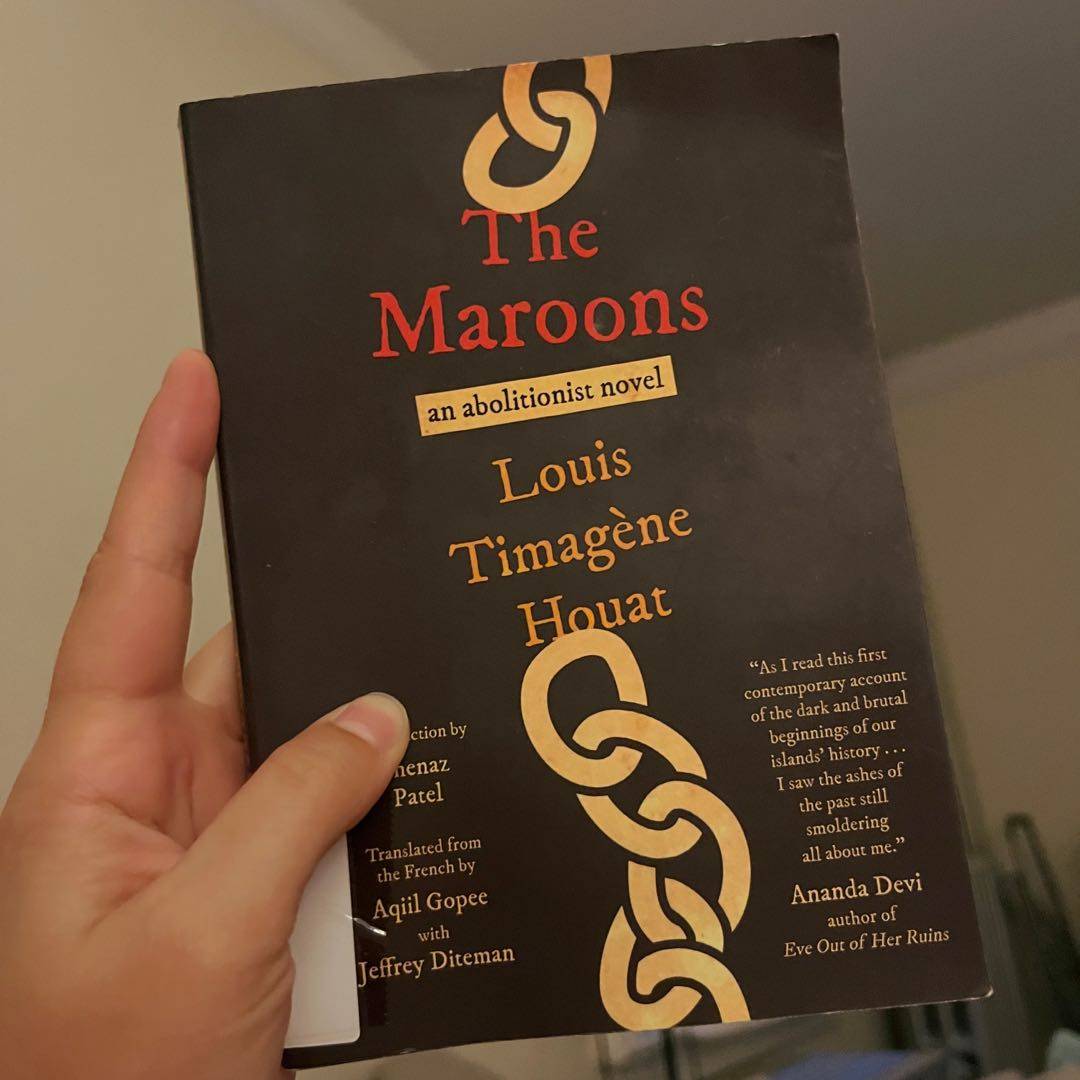
As an artifact itself more interesting than the actual narrative it presents, “The Maroons”, the first ever Réunionese novel, tells a story of marronage on the French colony of Bourbon (now Réunion) in the Indian Ocean. First published in 1844, the book was suppressed by the French authorities & was only rediscovered in the 1970s. Shoutout to the New York Public Library Bookmobile by Yankee Stadium— this + 4 others = my first check out from NYPL!
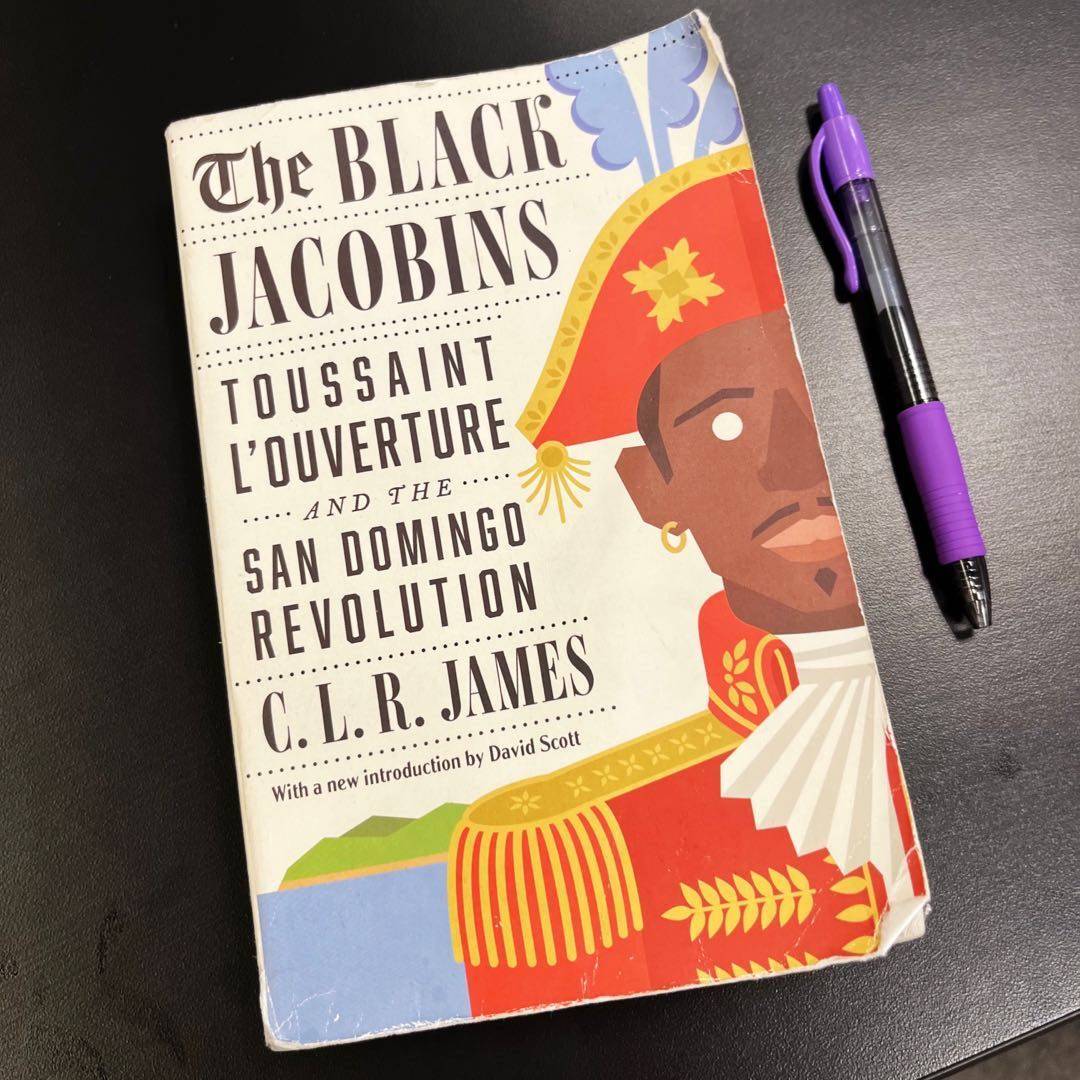
CLR James is literally one of the greatest to ever do it, and The Black Jacobins certainly earns its reputation as a classic. Impossible not to think of Gaza as you read.
“When history is written as it ought to be written, it is the moderation and long patience of the masses at which men will wonder, not their ferocity.”
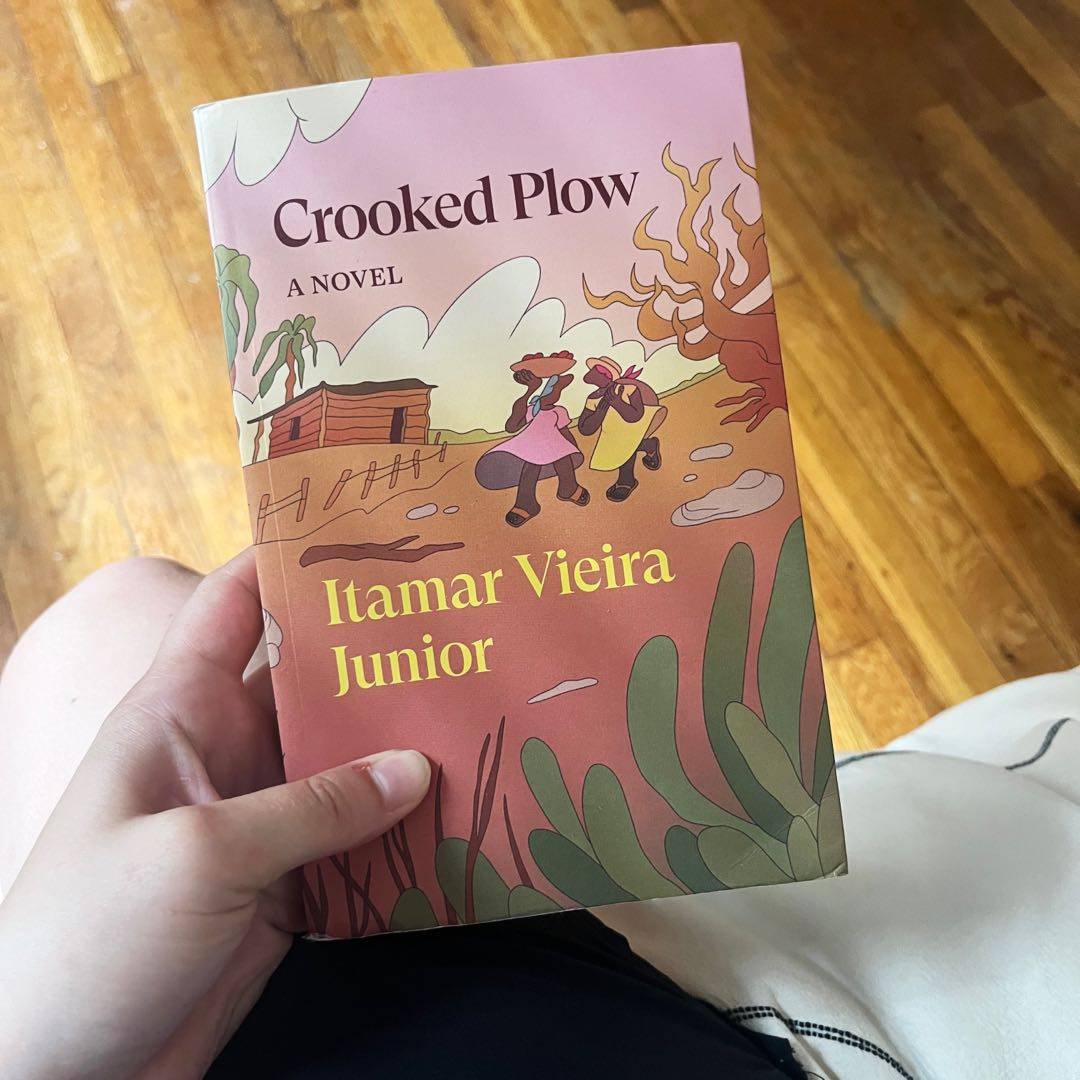
Finished this stirring novel a few days ago. Crooked Plow is about two sisters whose lives are set in motion by a violent childhood accident. They are quilombolas, descendants of slaves raised on the plantation Agua Negra, & the daughters of the community‘s healer. Despite divergent paths, they both develop consciousness about their rights as Black landless workers & as women, and struggle for the right of Agua Negra‘s workers to land & dignity.
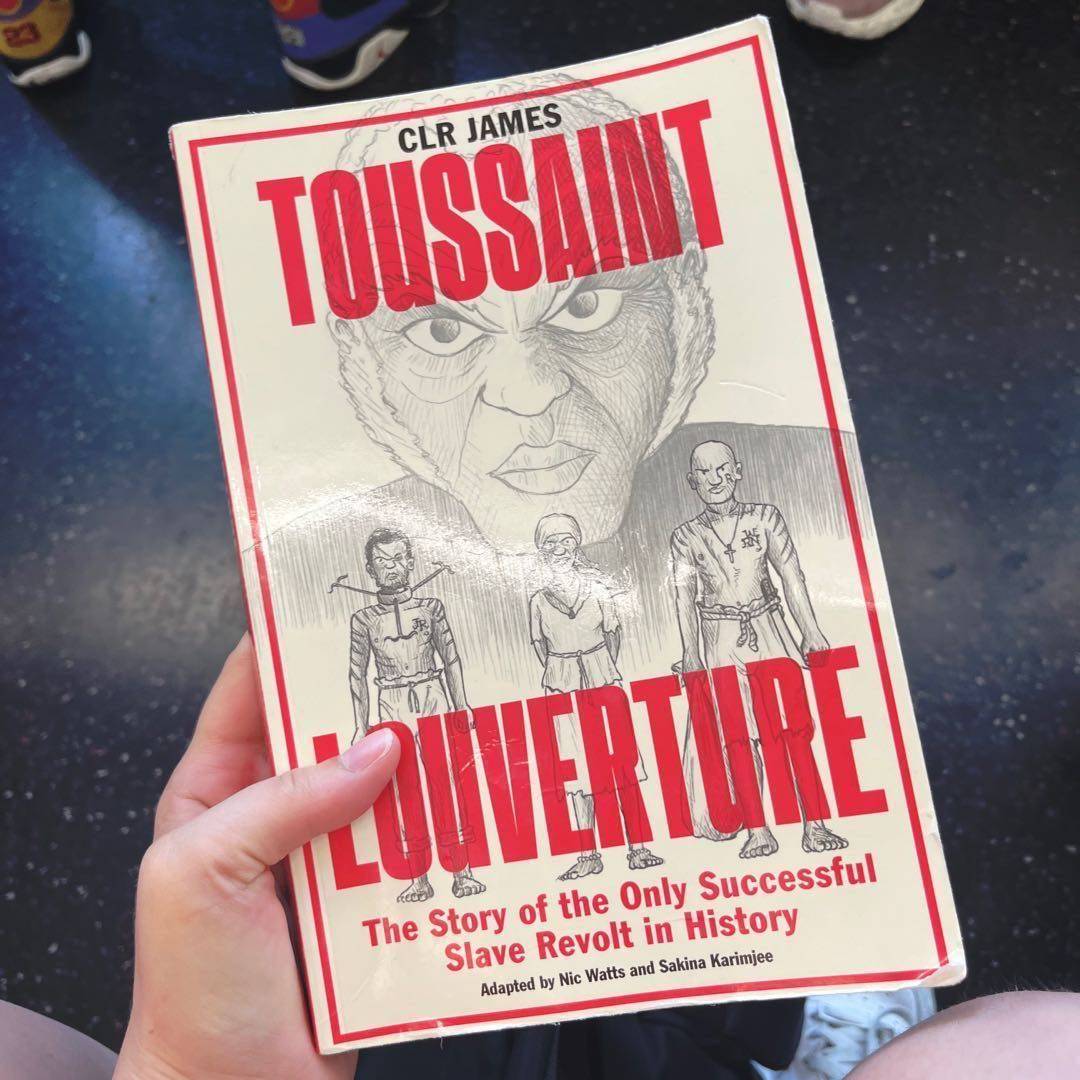
What a gift to be alive for the rediscovery of this text in James‘ archives after 70 years of being missing! In 1936, “Toussaint Louverture”, a play written by CLR James and starring Paul Robeson, opened in London. Now, following the script‘s rediscovery, it has been beautifully imagined in graphic novel form. The original script as well as its illustrated adaptation are both impressive. If I taught high school I would totally teach this book!
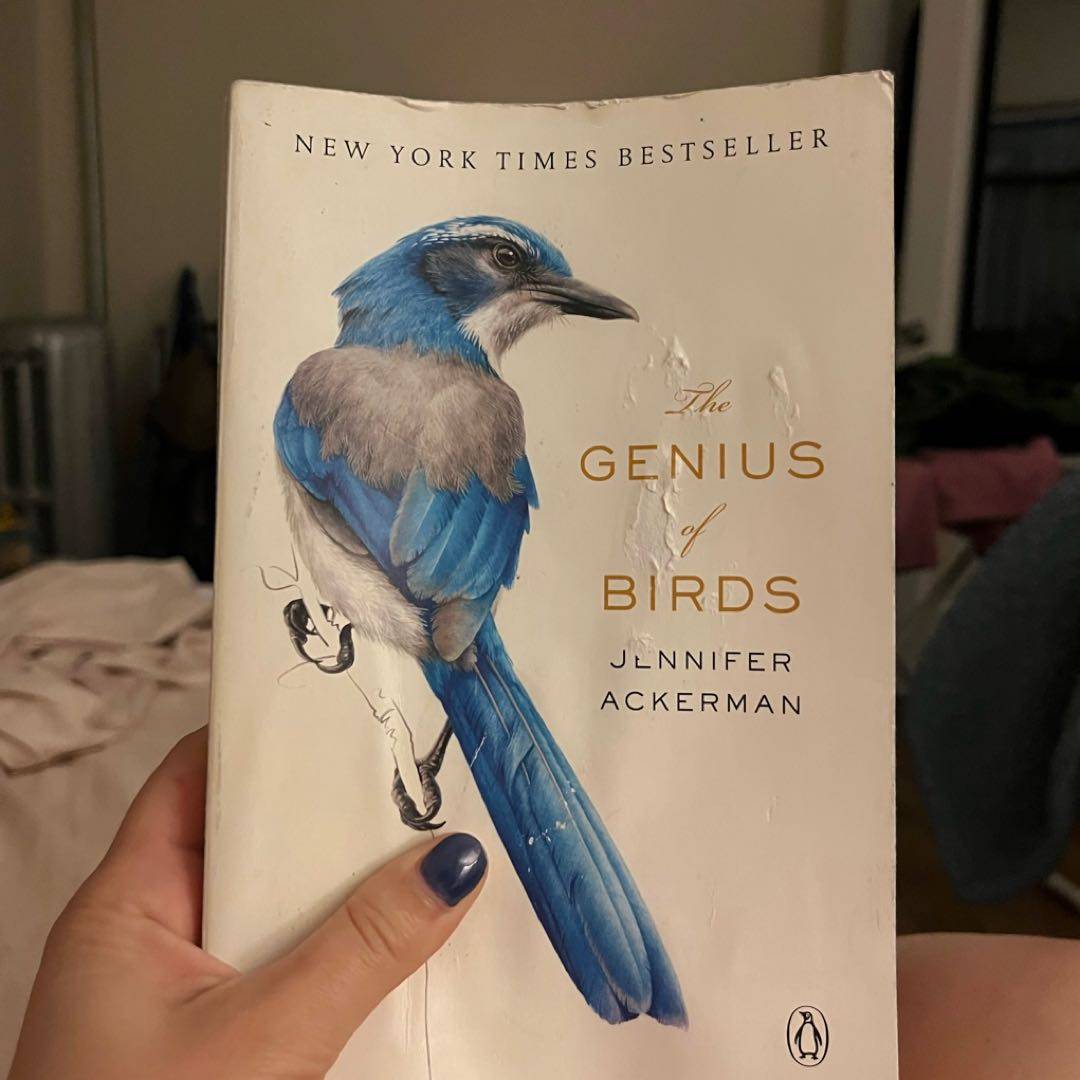
Please excuse the fucked up cover— got stuck to the bedside table bc my cat knocked a glass of water onto it 🙄 Read this in honor of spring migration. Started in April, took a hiatus, and just now finished it. Not bad, but also not the best— lacks the charm & wit of, say, Bill Bryson or Robin Wall Kimmerer‘s writings. But definitely has interesting information if you‘re into birds (like me!)
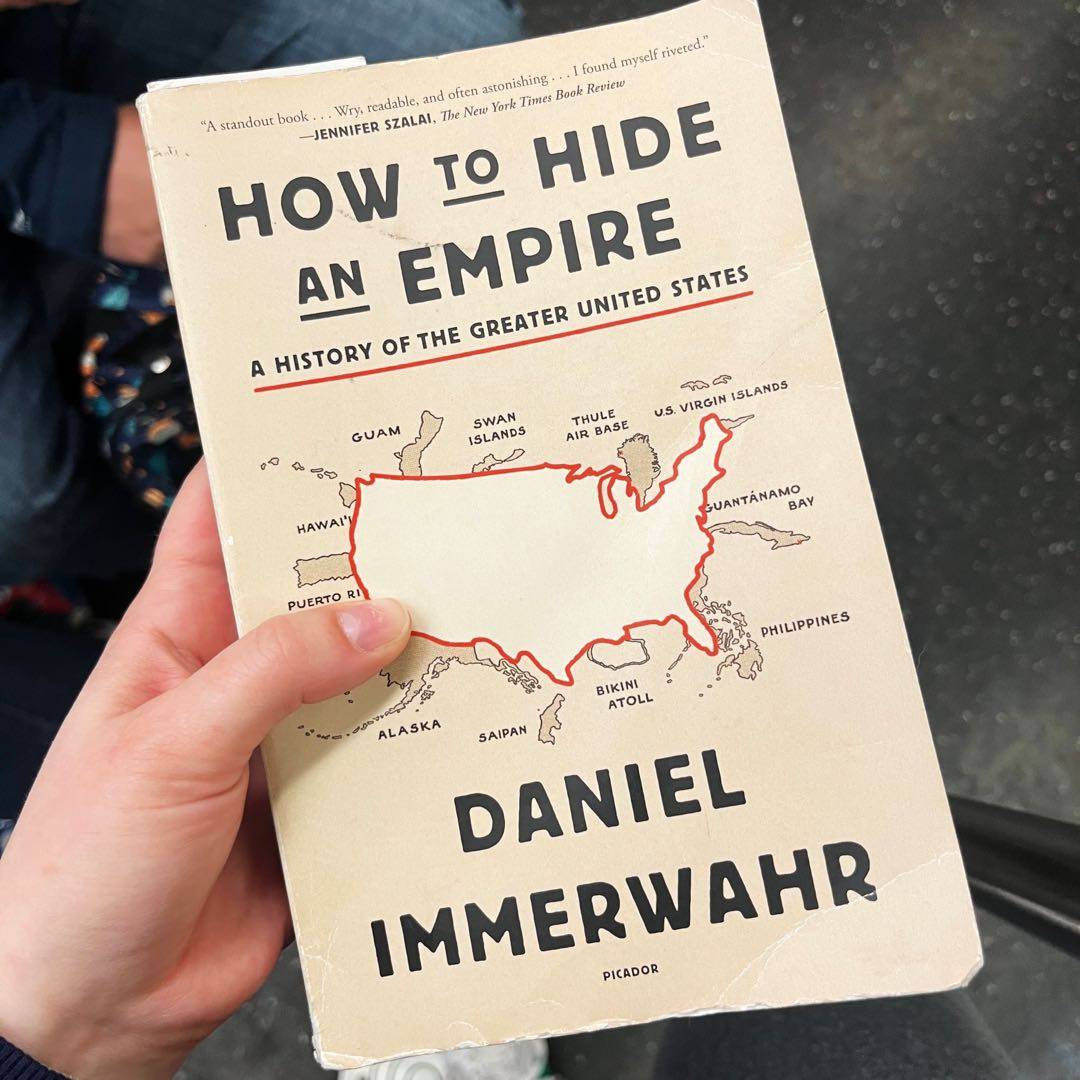
Such a great revisionist history! Very similar in content and form to a Greg Grandin book. “How To Hide An Empire” is about the history of the Greater United States— not just the mainland, or “logo map”, but former and present territories, too, with especial focus on the Philippines and Puerto Rico. Legit required reading!!
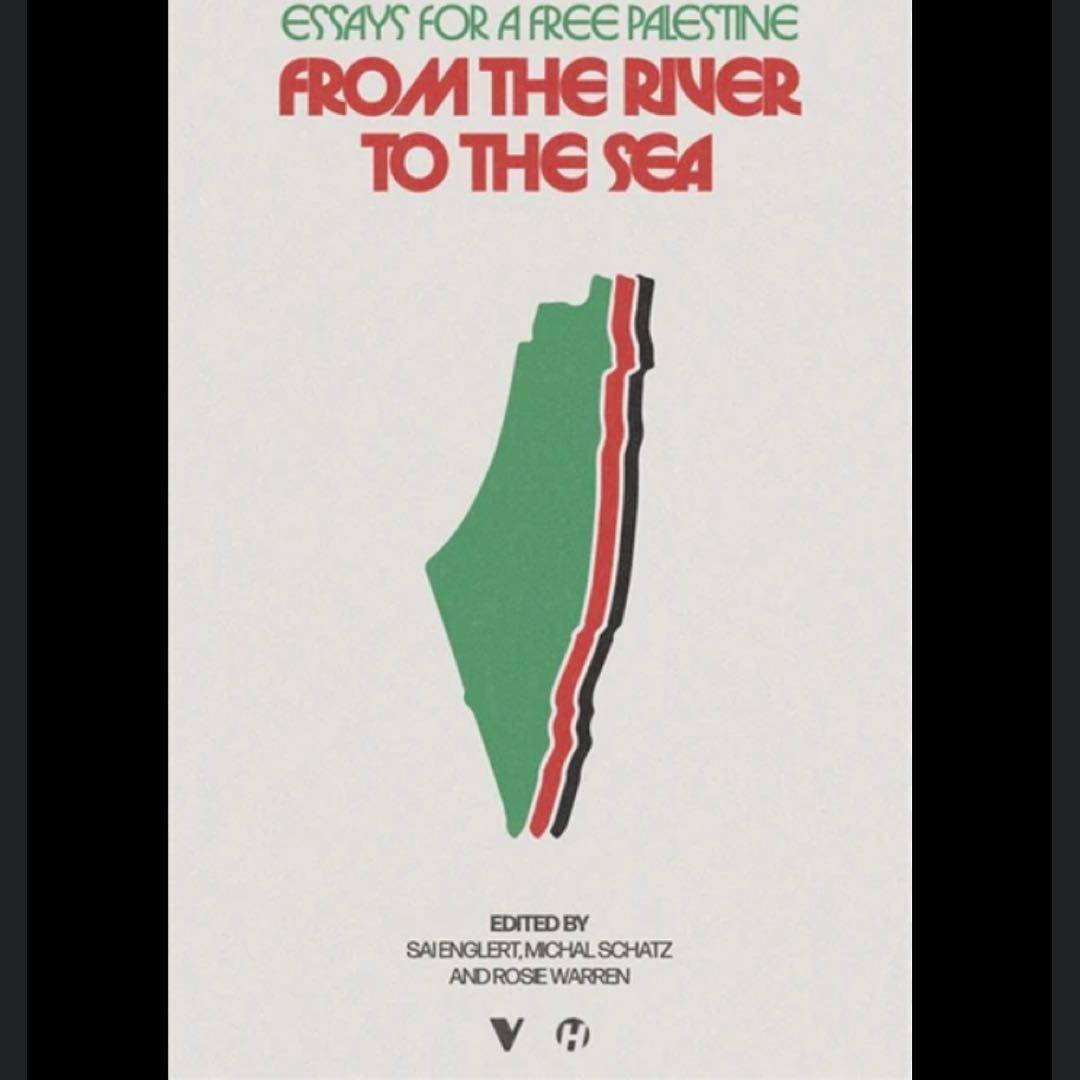
An excellent collection of reflections on the Gaza Genocide & the 75 yr Nakba. IMO the required readings are:
-“No Human Being Can Exist” by Saree Makdisi
-“Exchange Rate” by Eyal Weizman
-“The Enemy Trinity” by Jamie Allison & Sai Englert
-“The Oslo Illusion” by Adam Hanieh
-“Israel, Fascism & The War Against the Palestinian People” by Alberto Toscano
-“No Moses in Siege” by Mohammed El-Kurd
Go to Verso‘s website NOW to get this free ebook!!
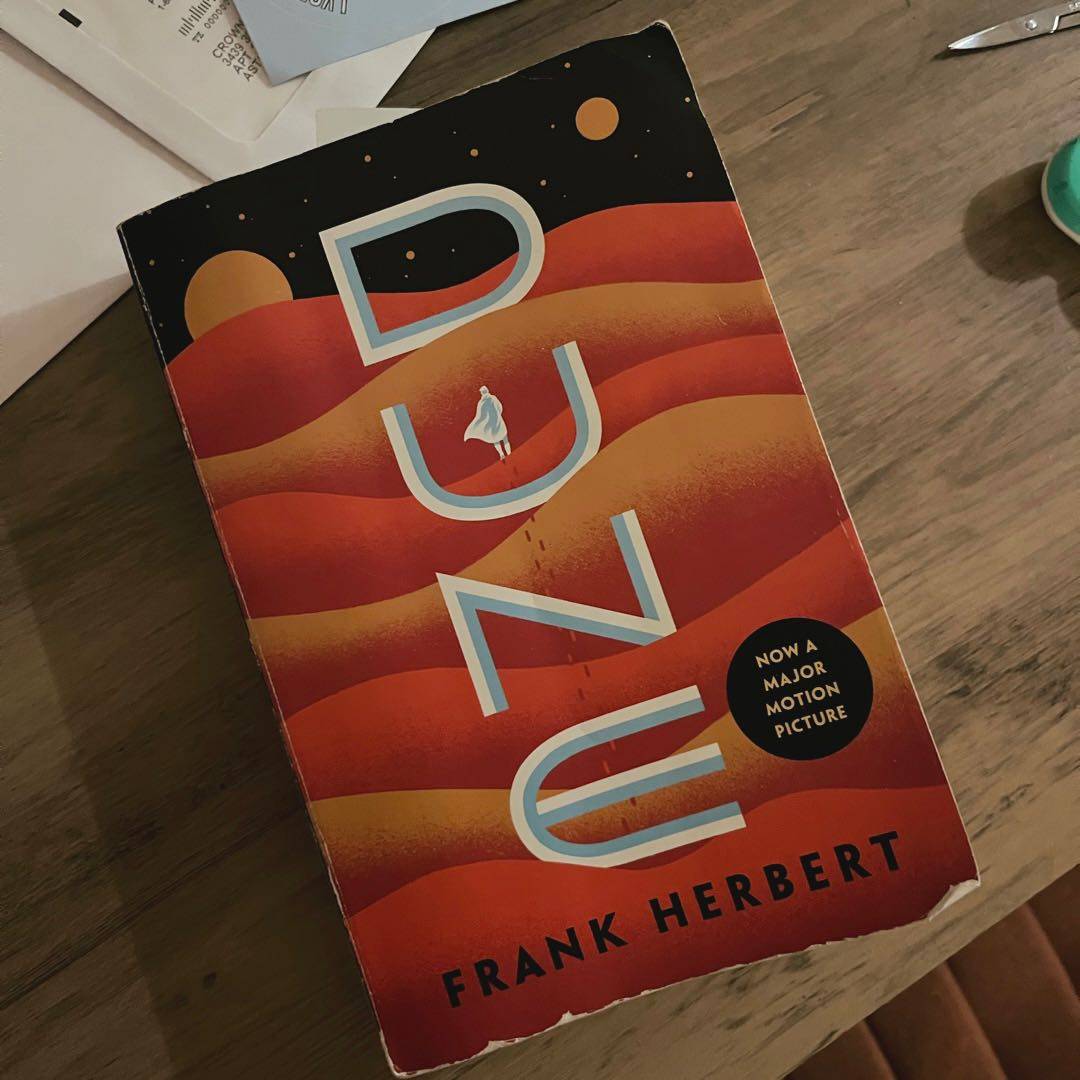
Just finished re-reading Dune… Denis Villeneuve was sooo right to make Chani a secular Third Worldist 🤞
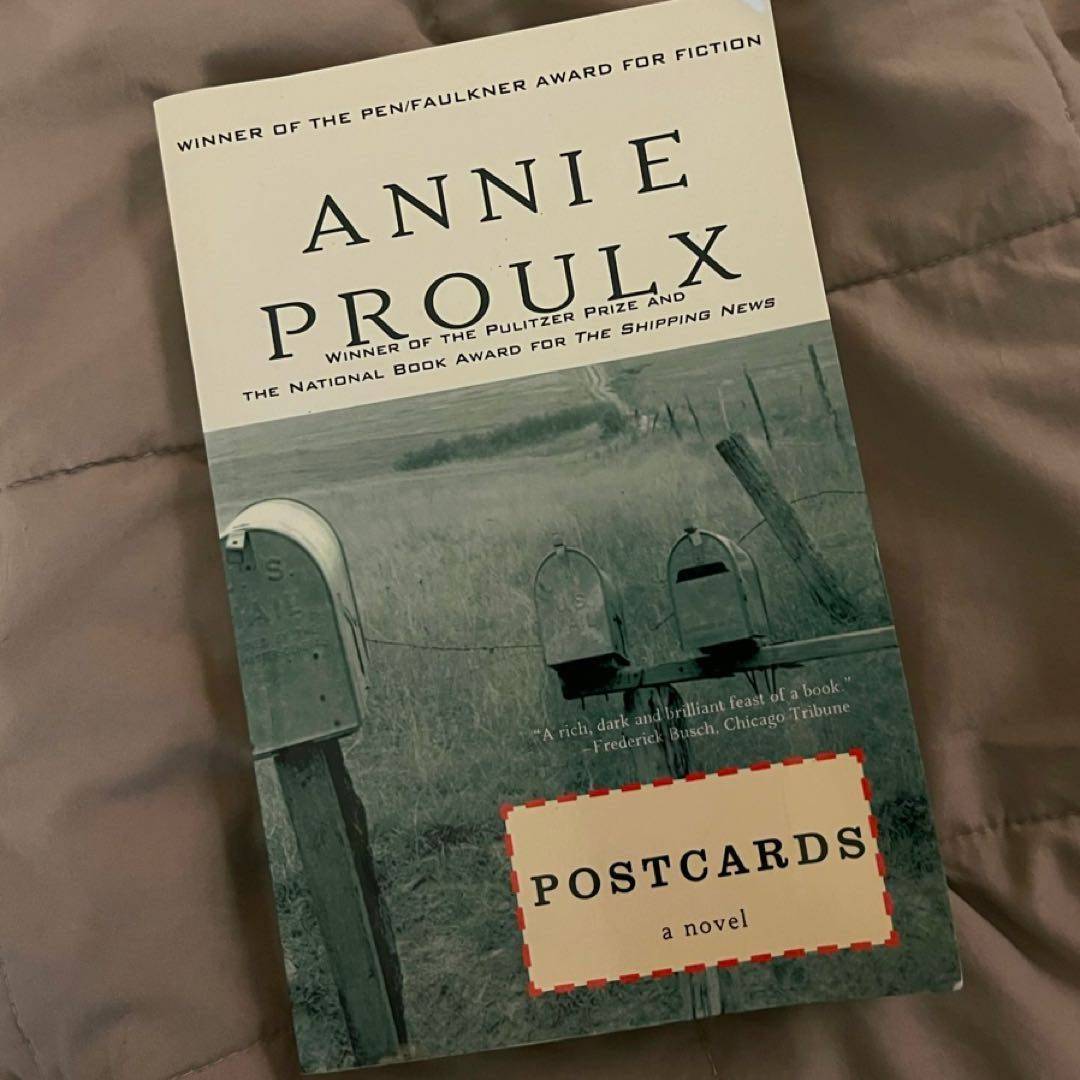
I finished Postcards about a week ago but forgot to log it. My dad gifted me this book two birthdays ago. It‘s a very competently written novel and it touched me by the end in a way that I didn‘t expect. I definitely would like to read Brokeback Mountain. Also makes me want to read some more Steinbeck soon.
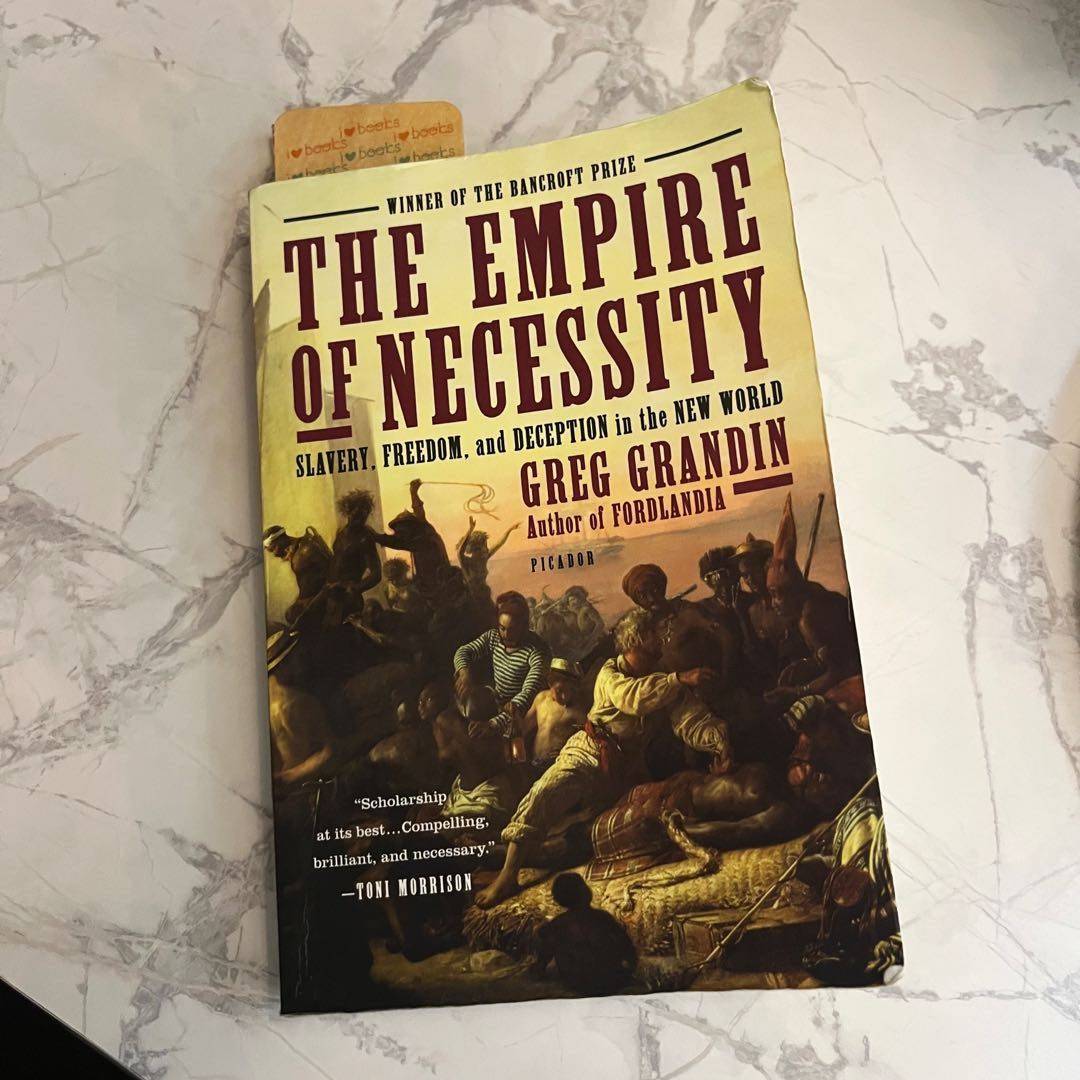
Another Grandin W 🤑 My interest in Herman Melville & admiration for Grandin dovetail in “The Empire of Necessity”, in which Grandin takes the real slave uprising that inspired Melville‘s “Benito Cereno” as a jumping off point for a grand history of slavery in the Americas, and especially Spanish America. Magisterial. 🌟5/5🌟
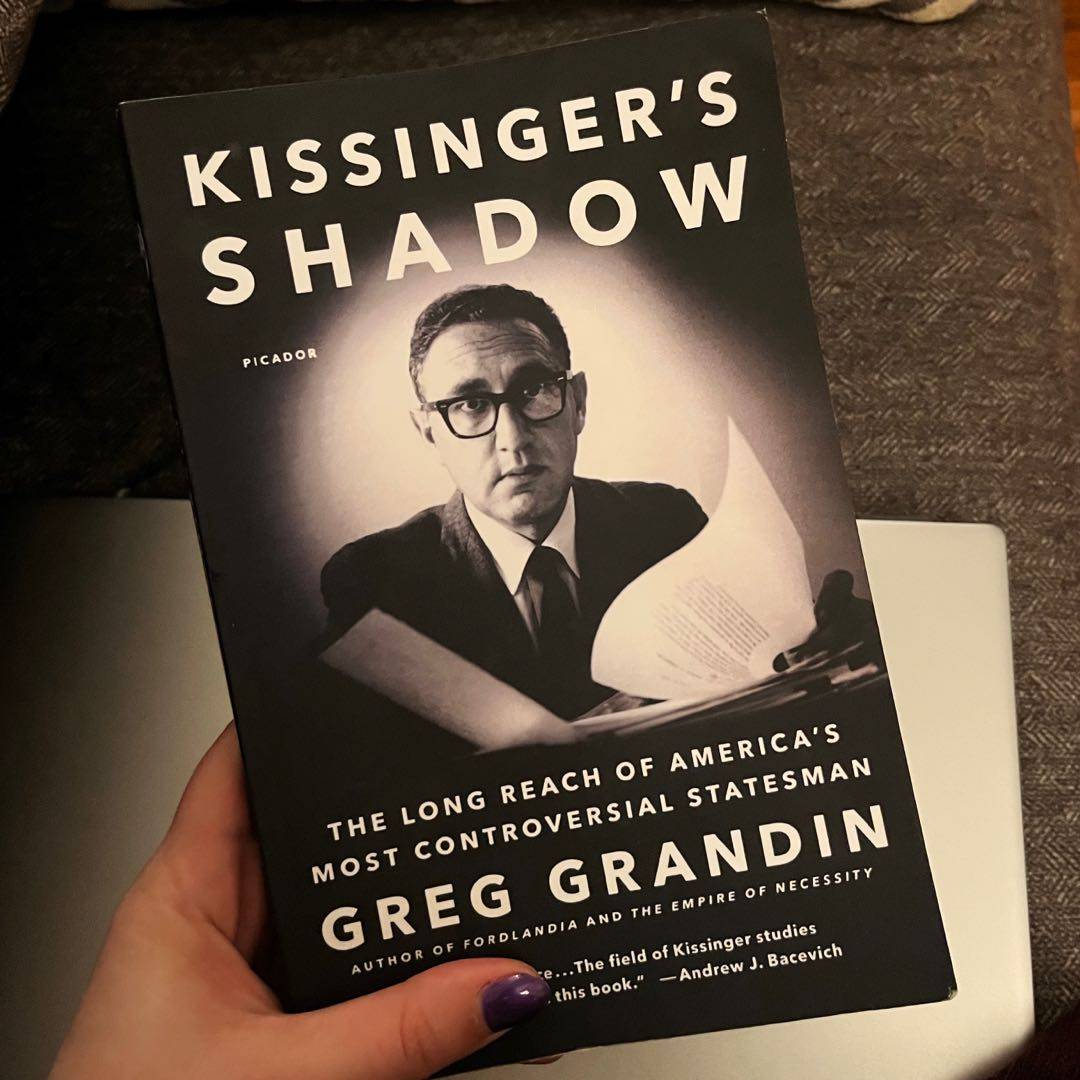
Finish this a few days ago - first book of 2024. My partner ordered this for us the day that Kissinger died, or perhaps the day after. Really good introduction to Kissinger‘s long career. Grandin always has a grounding motif, this time Kissinger‘s metaphysical philosophy as expounded in his 1950 Harvard senior thesis, “The Meaning of History.” Evergreen, of course; the U.S. started bombing Yemen last night.
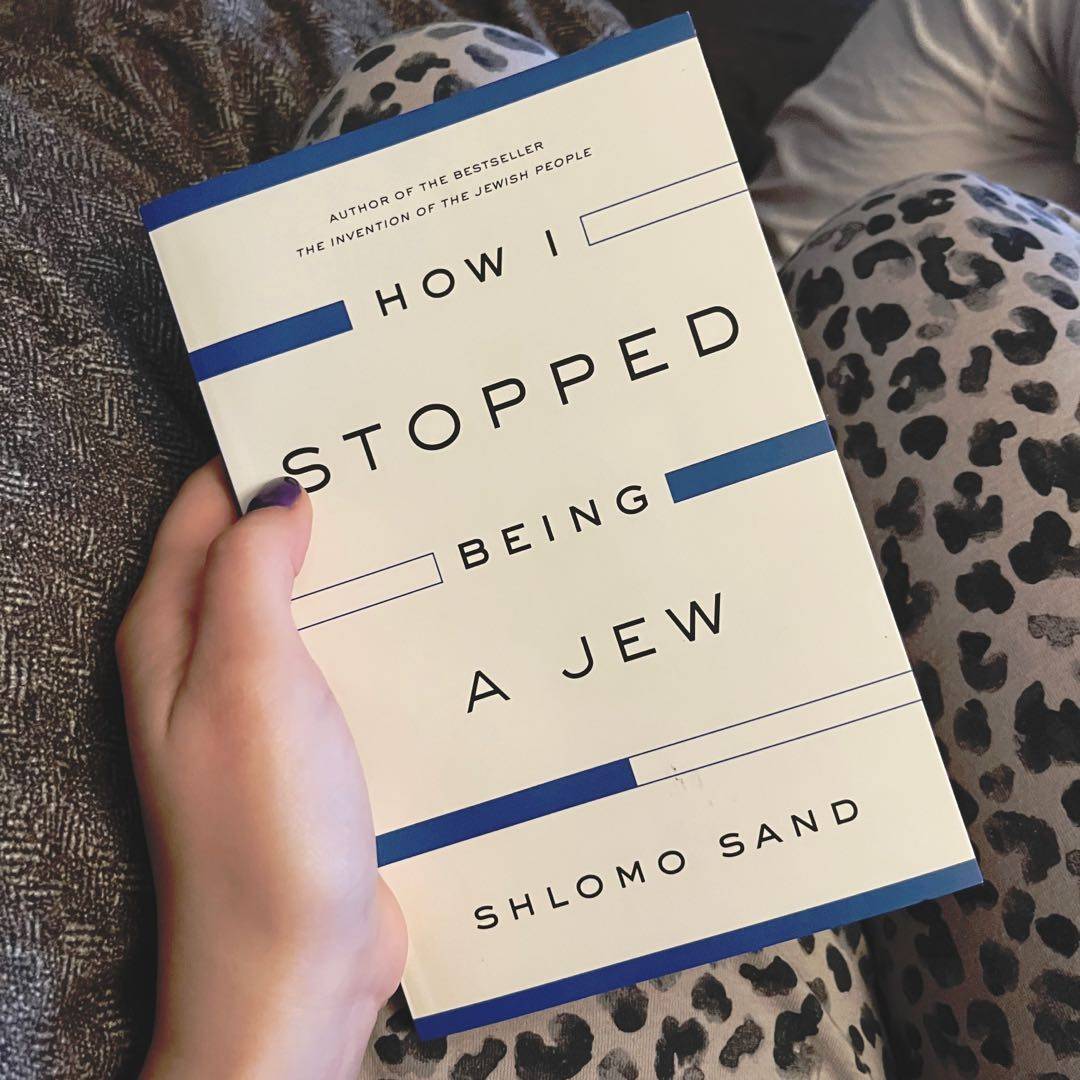
Last book of 2023, read in one sitting. Sand raises the pressing question: is there any non-racial basis for secular Jewish identity today? (His answer is no.) Fresh, provocative and necessary. Some parts I‘m still wrestling with, and I think ultimately Bertell Ollman‘s “Letter of Resignation from the Jewish People” resonated more w/ me bc of how Ollman squares the circle of Jewish identity w/ communist universalism.
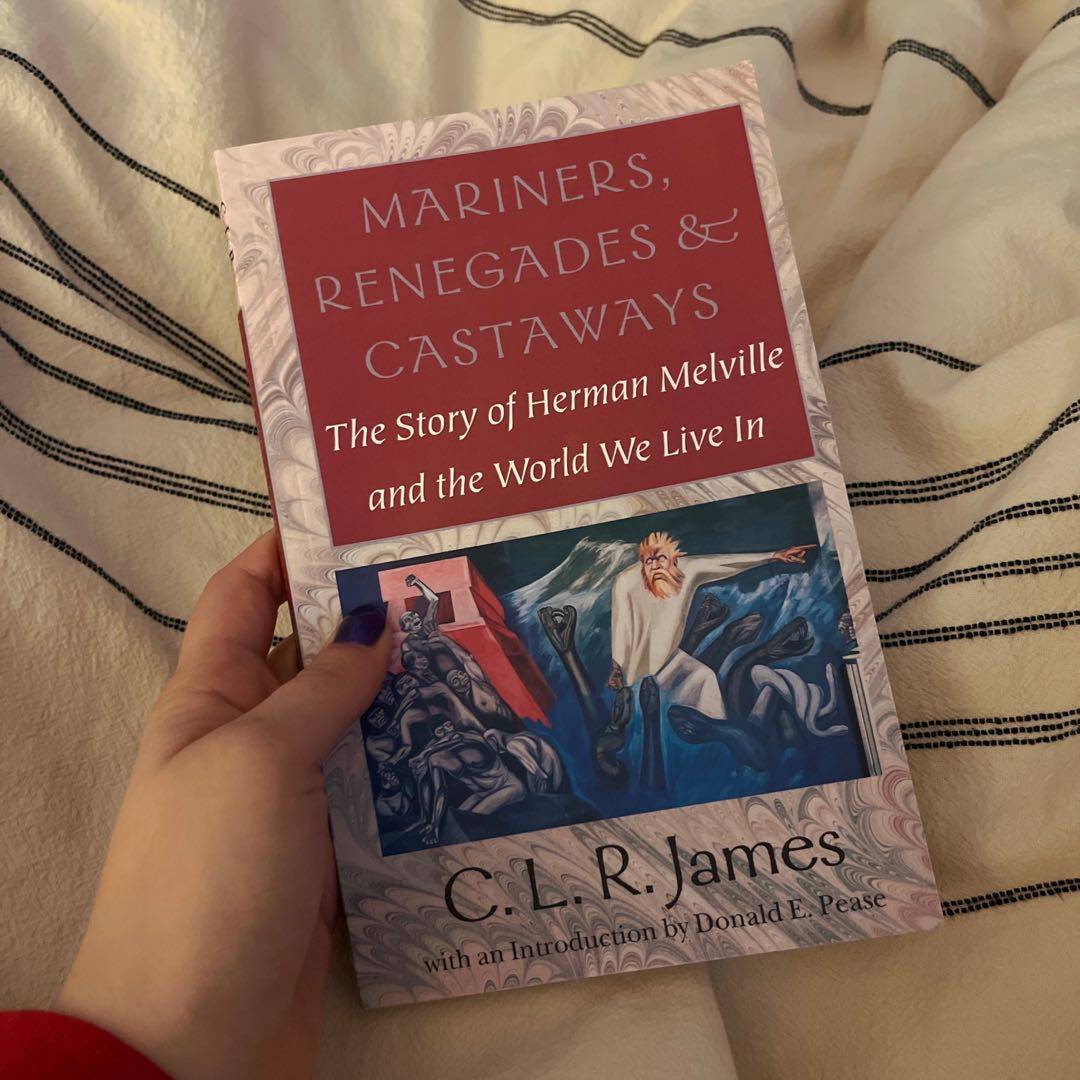
In the summer of 2022, I chanced upon a reference to CLR James‘ “Mariners” in Noel Ignatiev‘s posthumously released collection of essays. I was fascinated & so I resolved to read Moby Dick, which took me 4 months during that fall & winter. Almost exactly year after finishing Moby Dick, I‘ve finally read “Mariners” and I truly feel like I‘ve completed some sort of visionary quest. Full circle moment for sure!
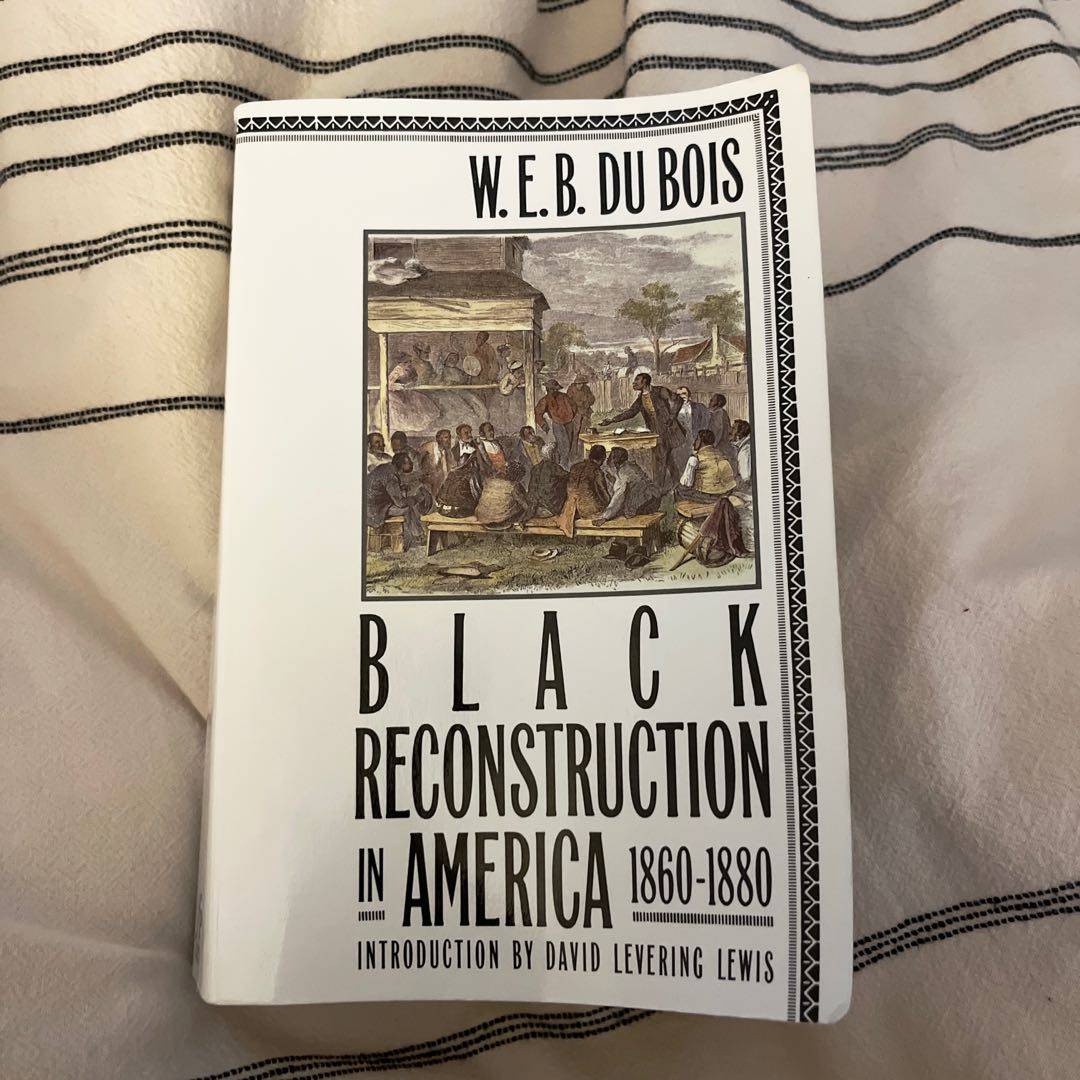
4 months and 700 pages later… and immediately following Marx‘s Capital. As God intended. 😛 Not an easy book to constantly pick up & put back down, so I enjoyed dedicating a lot of time this break to seriously pushing through the last 300 pages. A masterpiece.
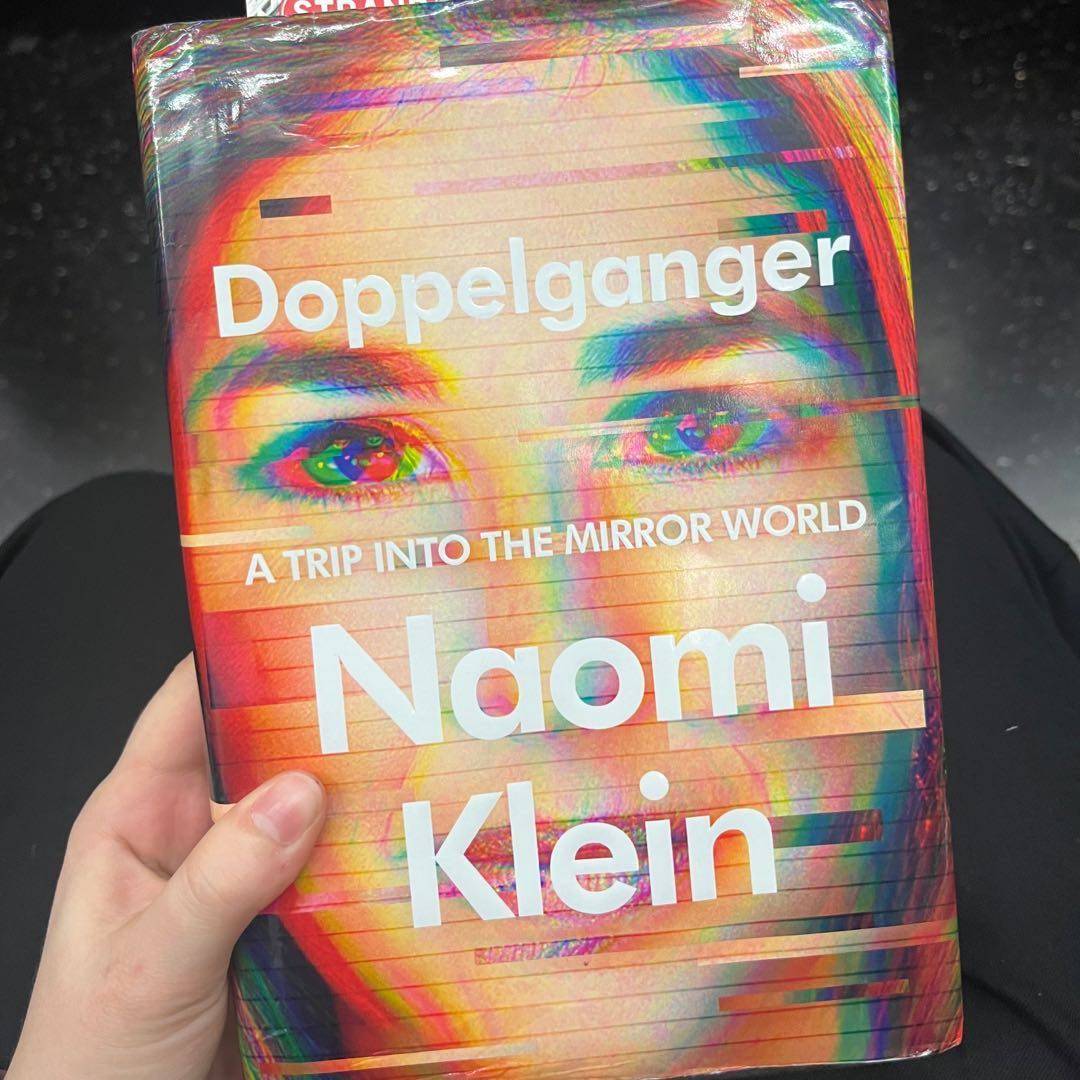
Idk… I liked it! Maybe because of how much it was hyped up, I was hoping it would be paradigm-altering. It wasn‘t- not to me, at least. But it was still very interesting & enjoyable. A bit frenetic, maybe a bit narcissistic in a pandemic era-way… but also completely self-aware about that fact, which makes it work on some level. Probably didn‘t help that I find it almost completely possible to focus on anything right now that is not Gaza 🙃
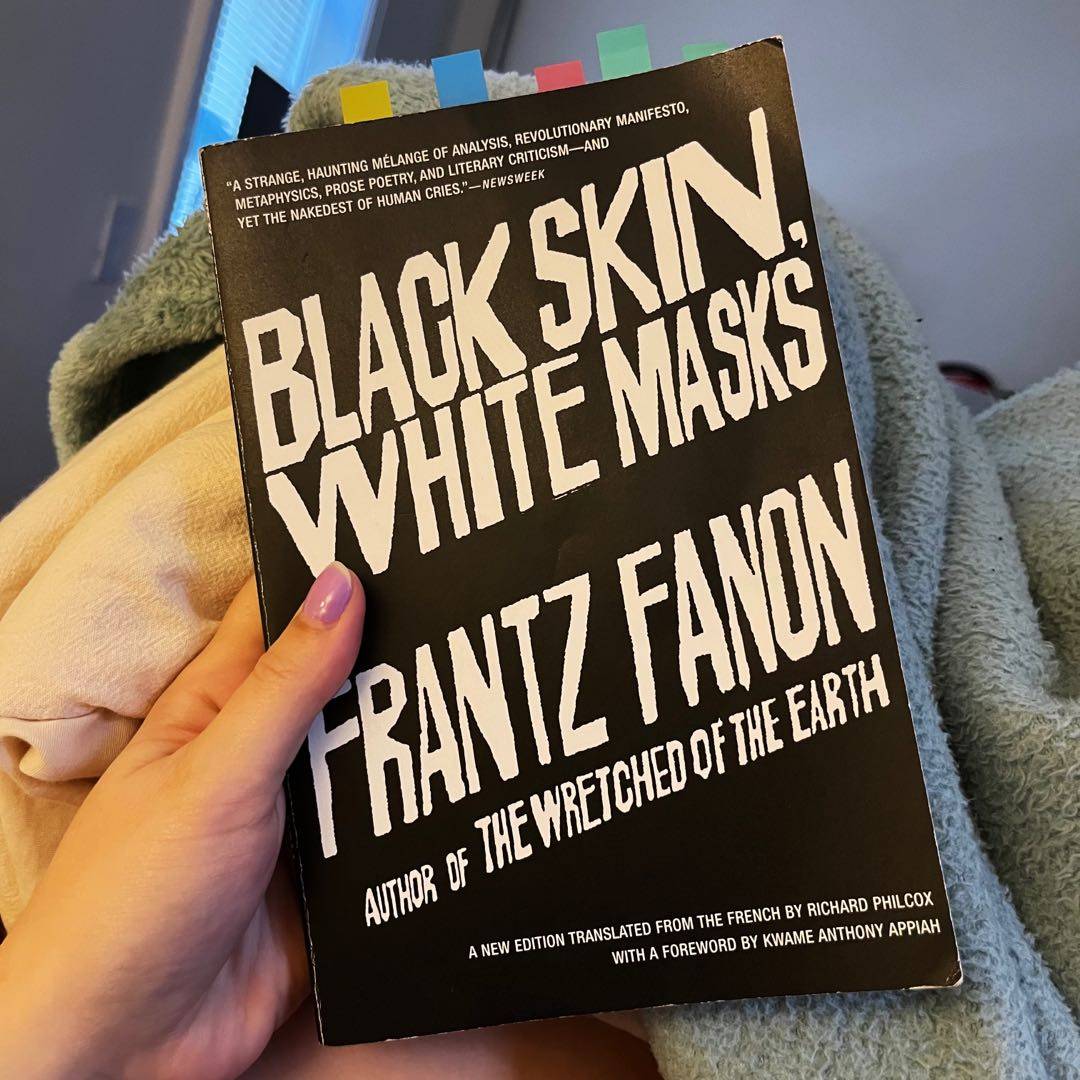
Happy to have finally read Fanon! Reading this was a bit like looking through blinds; so much is obscured, but rays of dazzling light shoot through. By that I mean it‘s an obviously brilliant work, but a lot of the psychoanalysis and phenomenology went over my head. I‘d definitely like to re-read it more closely in the future.
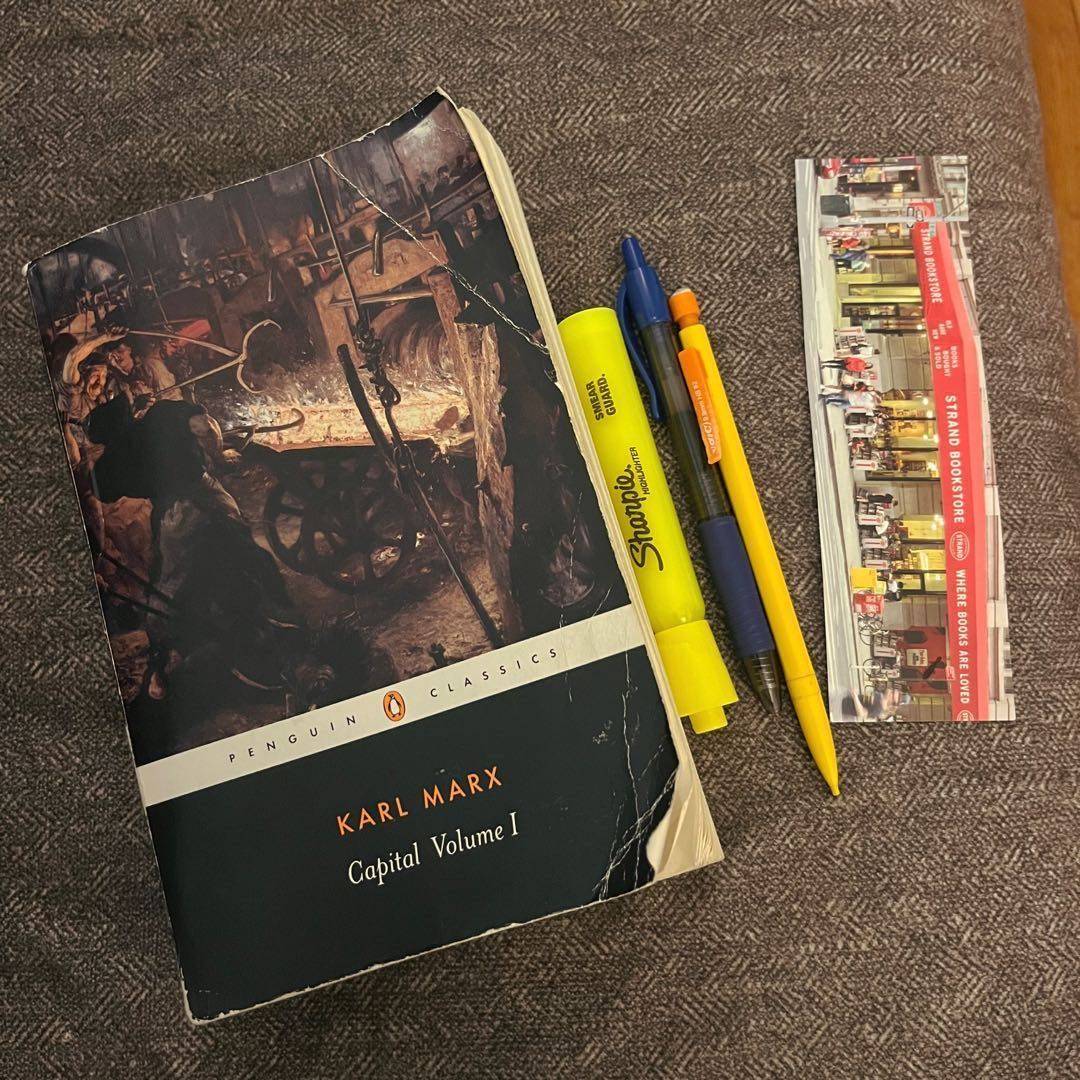
WE DID IT!! After more than a year, and 1,000+ pages, my partner and I finished reading Capital Vol. 1!! We basically took turns reading the entire thing out loud line by line. I also kept a notebook that I‘ve updated after each chapter (still need to finish my notes on the Appendix)! It was so much clearer (and funnier!) than I anticipated & I would encourage anyone who wants to read it to not feel daunted. But, definitely read with a buddy 🤓
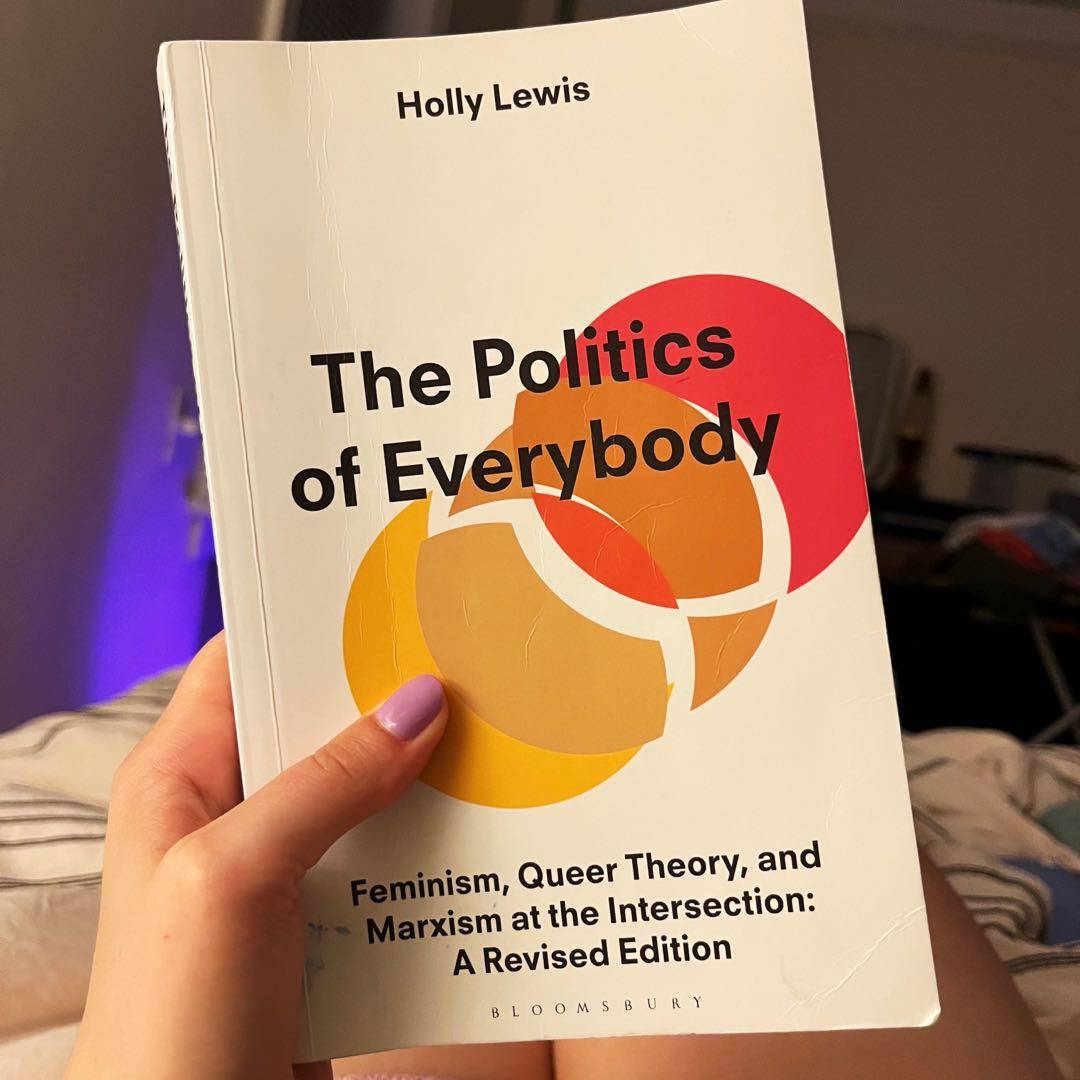
I‘m pretty bummed because I was really excited to read this, & I think the author‘s intervention is an important one, but I did not really love this book. Even though I agree with many of her conclusions, I feel like she relies too much on ungenerous assertions (often without citations) and bizarre analogies. I wonder if I didn‘t vibe with the style of argumentation because she‘s a “philosophy person” instead of “political theory person” 🤷🏻♀️
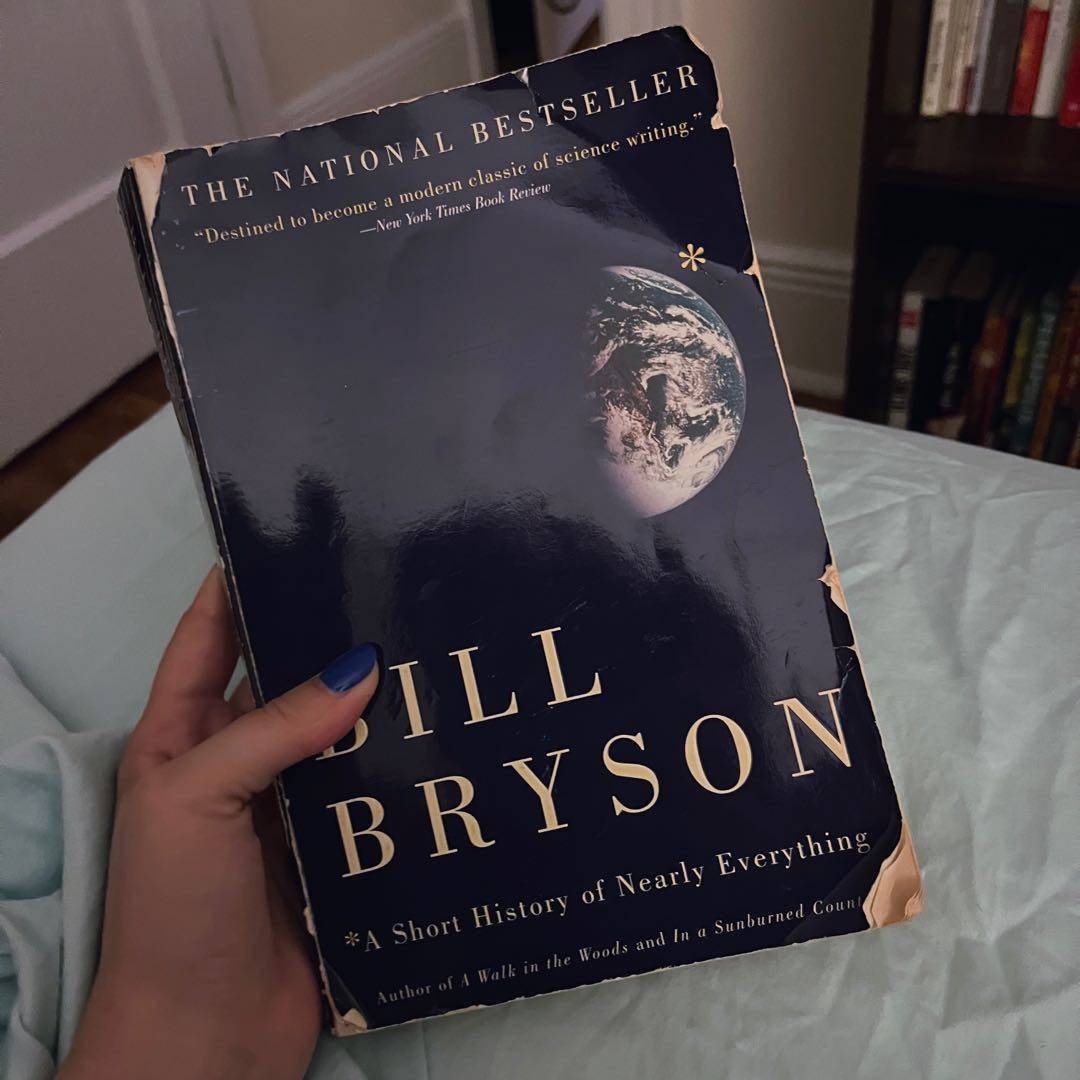
In my pop science era 🤓🕺🏻 I remember very vividly from my childhood my dad always telling me how much he loved Bill Bryson‘s writing and enjoyed this book. I was stoked to find it at the thrift store for $2. It was written in 2003 so some info is a tad outdated (Pluto is not a planet, the existence of the Higgs Boson particle is confirmed, etc) but overall it‘s an easy, entertaining and wildly informative read.
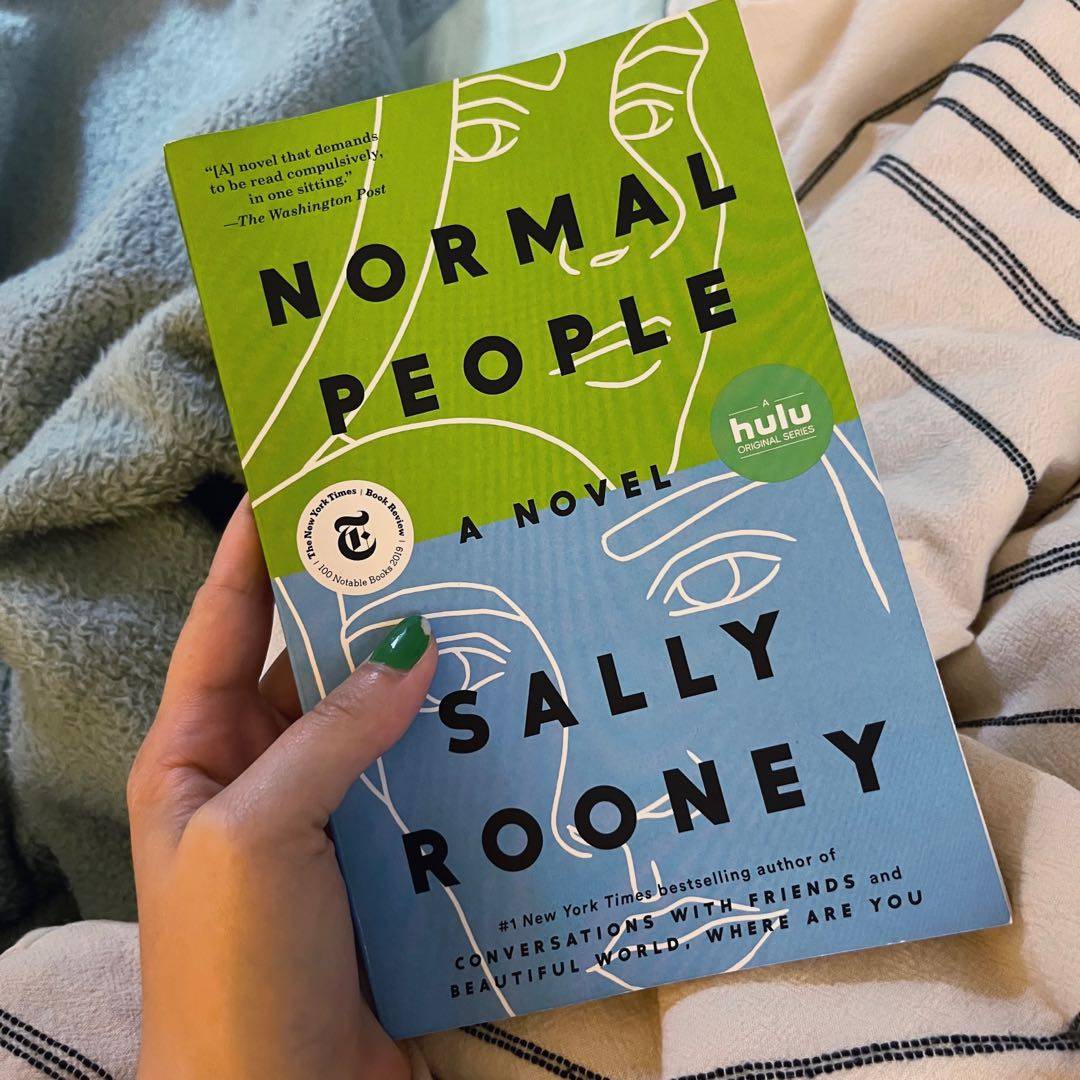
Another banger from Rooney, thought I might prefer Beautiful World. I may need to think about it more before deciding.
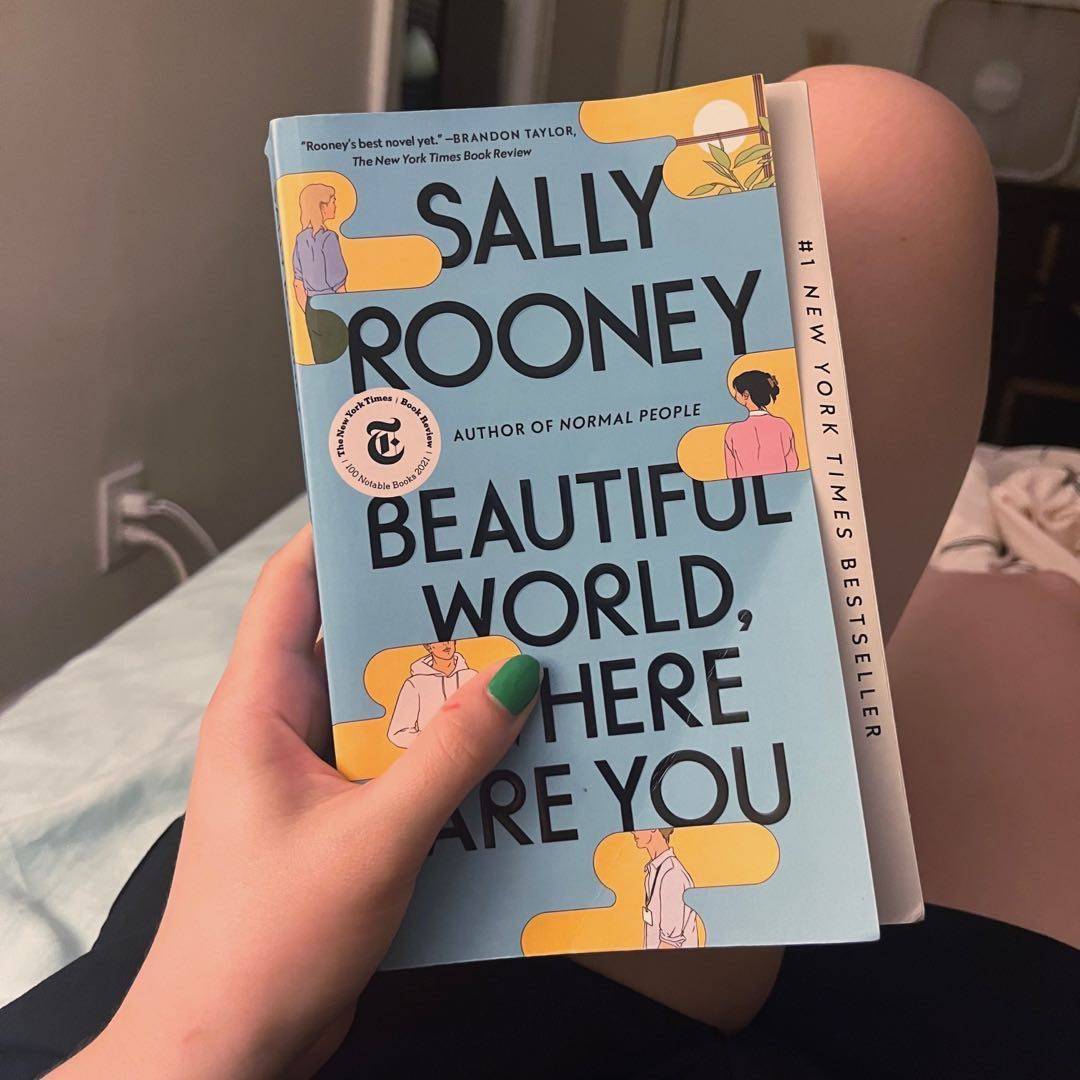
(Repost) What a strikingly beautiful novel 🥲 I know this book & the author were highly praised in the mainstream & left-wing media last year, so I‘ve been looking forward to reading it— but I didn‘t anticipate devouring it so rapaciously! It‘s been a long time since I couldn‘t put a book down, and I finished this one in 3 days. Planning to blow through Normal People next!
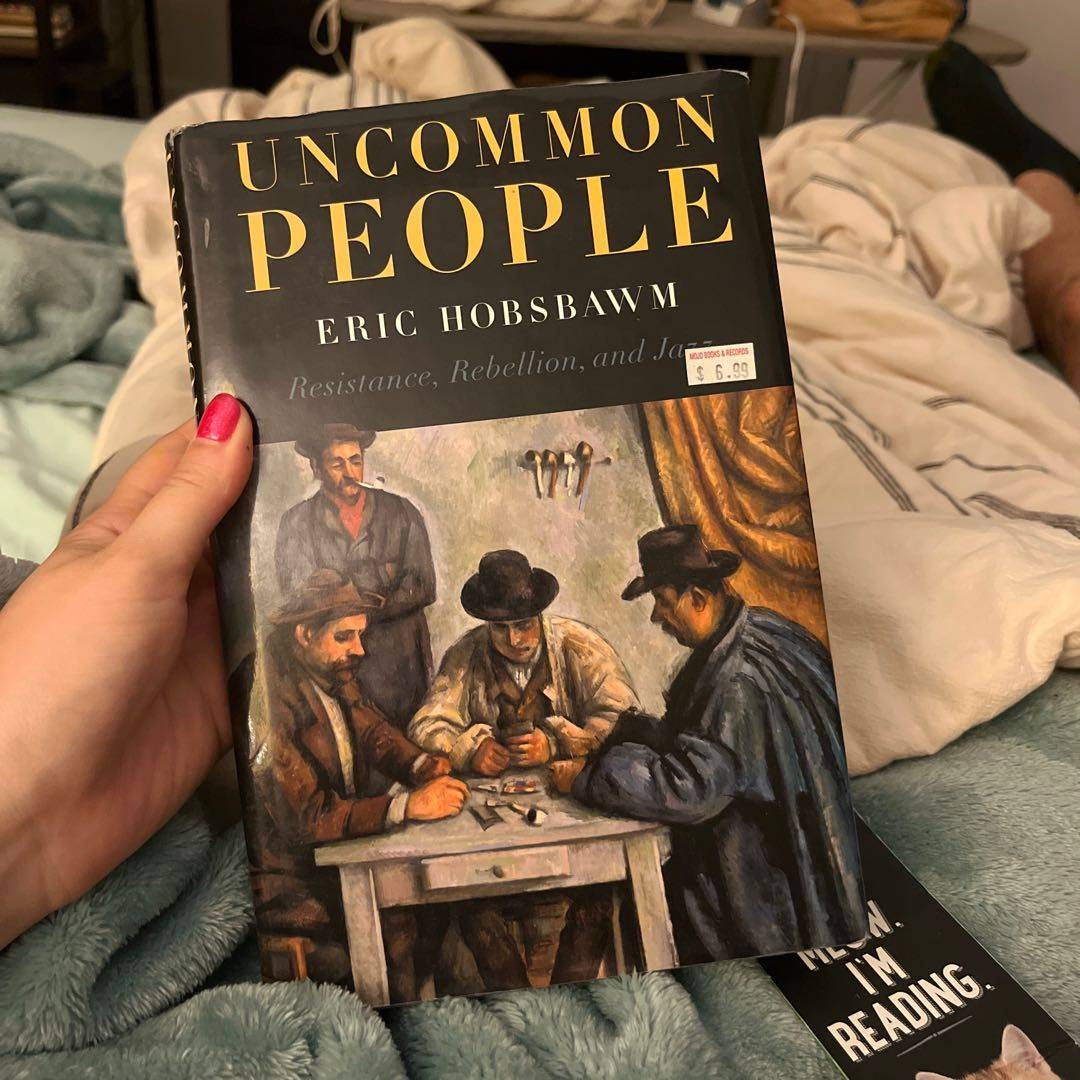
Incisive and striking, as always with Hobsbawm. I had no idea he was also a jazz historian & aficionado! The GOAT!!
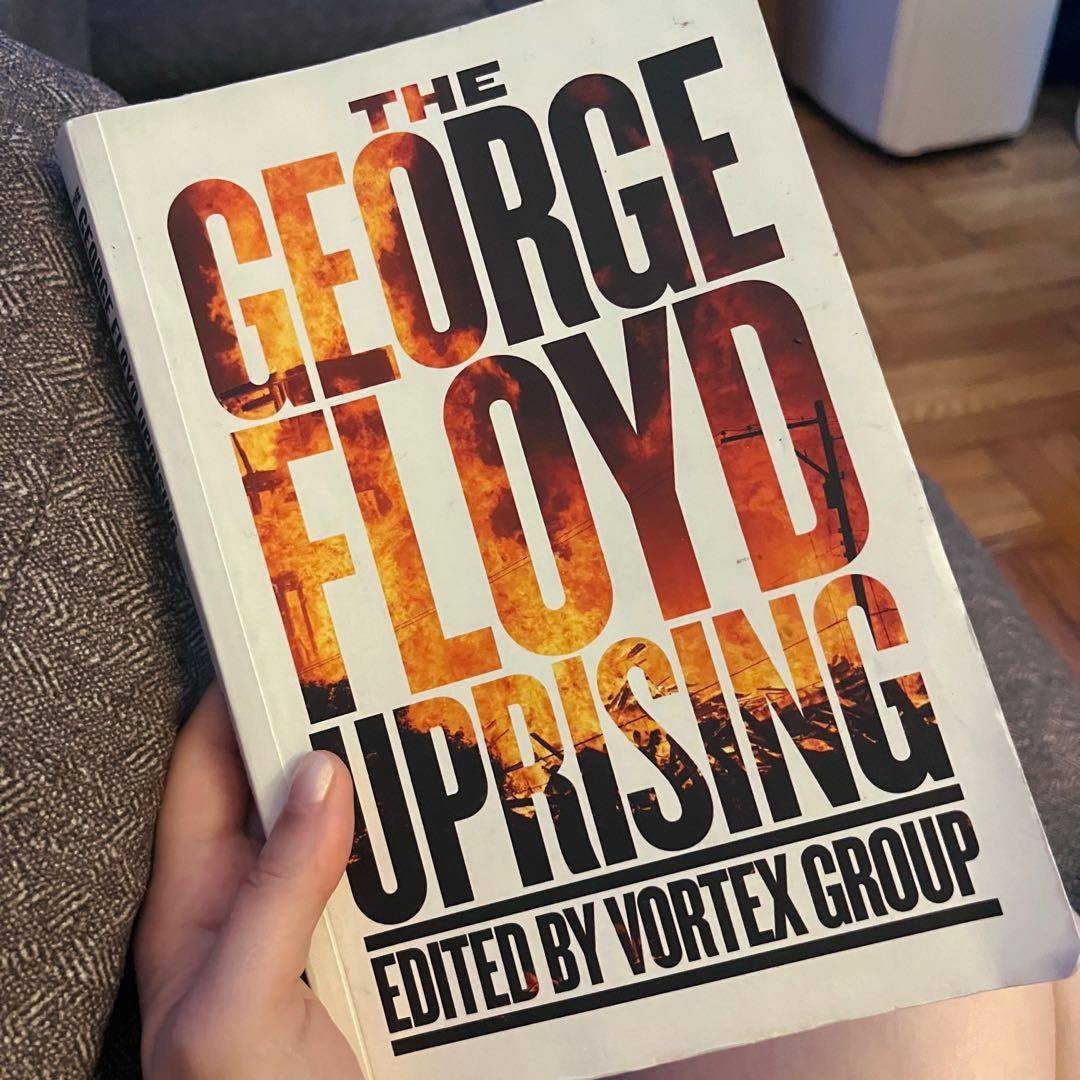
“A million correct ideas about the present are swept away by a single act that alters … reality.”
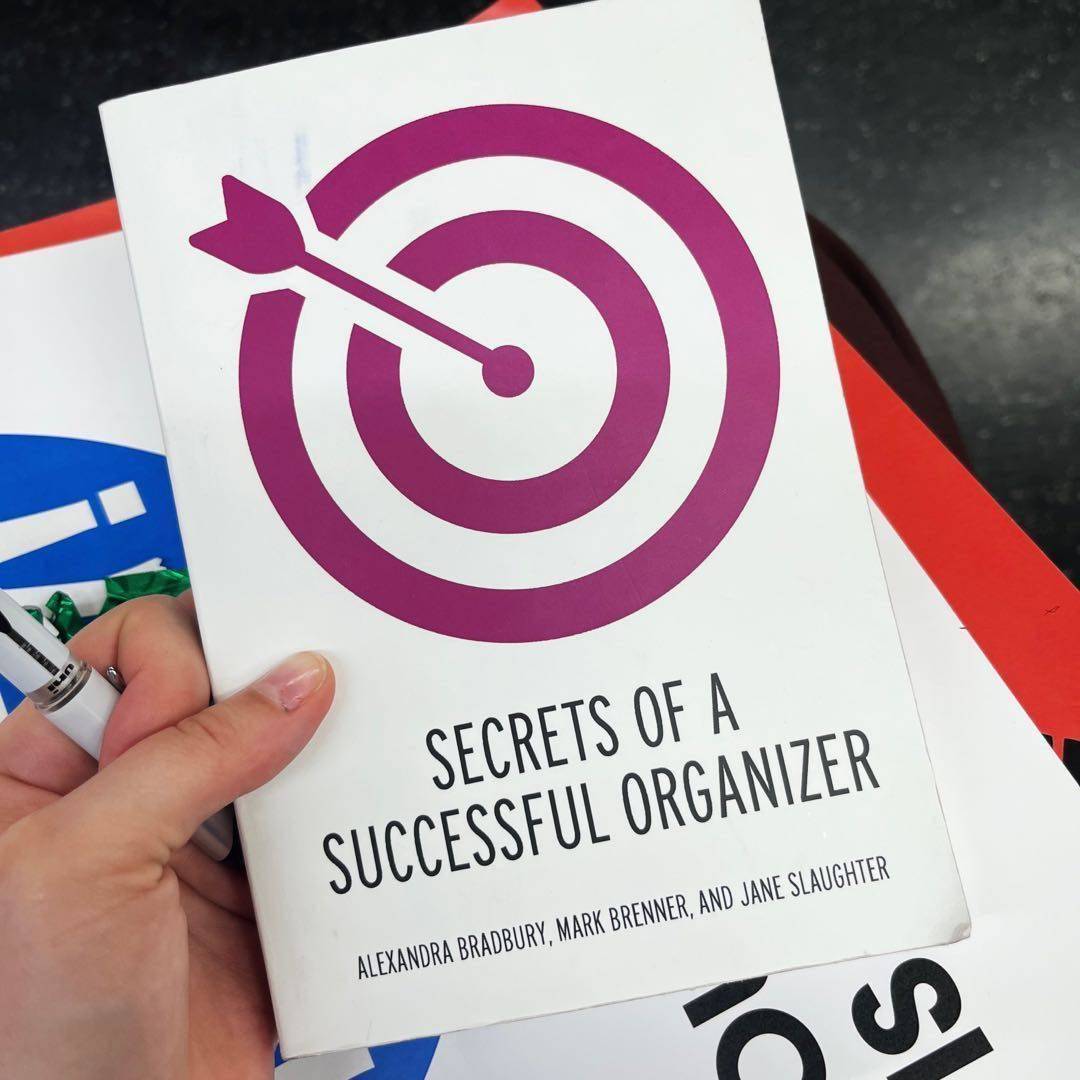
“Folksinger Pete Seeger used to describe a giant seesaw. One end is weighed down by the rich and powerful. At the other end, activists are adding sand, one teaspoon at a time.
‘One of these years, you‘ll see that whole seesaw go *zooop* in the other direction,‘ Seeger said. ‘And people will say, “Gee, how did it happen so suddenly?” Us and all our little teaspoons.‘”
Must read for anyone wanting to organize their workplace!
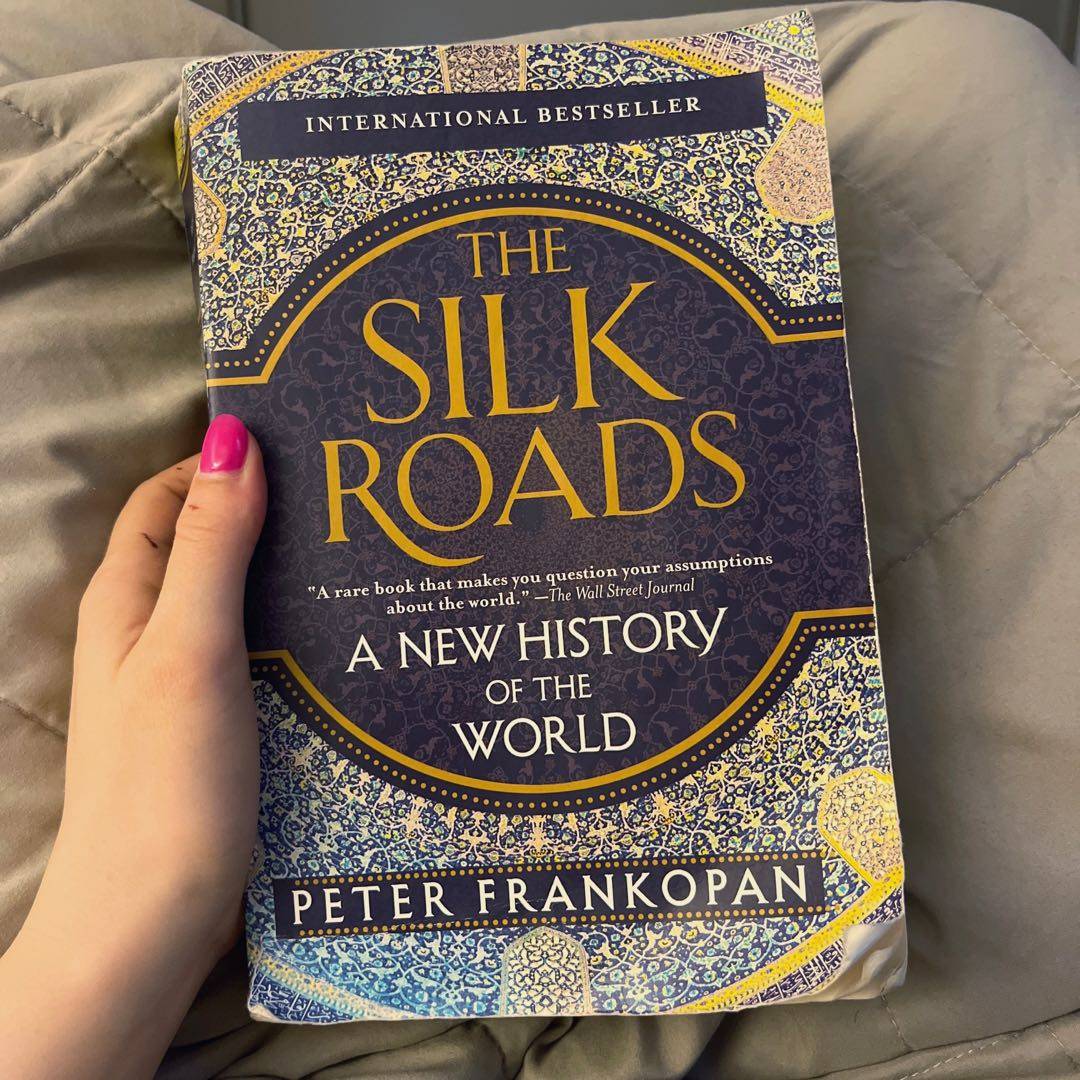
Extremely ambitious. Frankopan retells the world‘s history, from antiquity to the 21st century, w/ Central Asia as the focal point. Part of me wishes he split the book into 2, a la Charles Mann‘s 1491 & 1493. Still, the whole thing was incredibly well-researched & enjoyable to read. He did reveal some credulity re: US imperialism (& Israel), but such is probably the price from writing from the perspective of imperial powers. Overall, recommend!
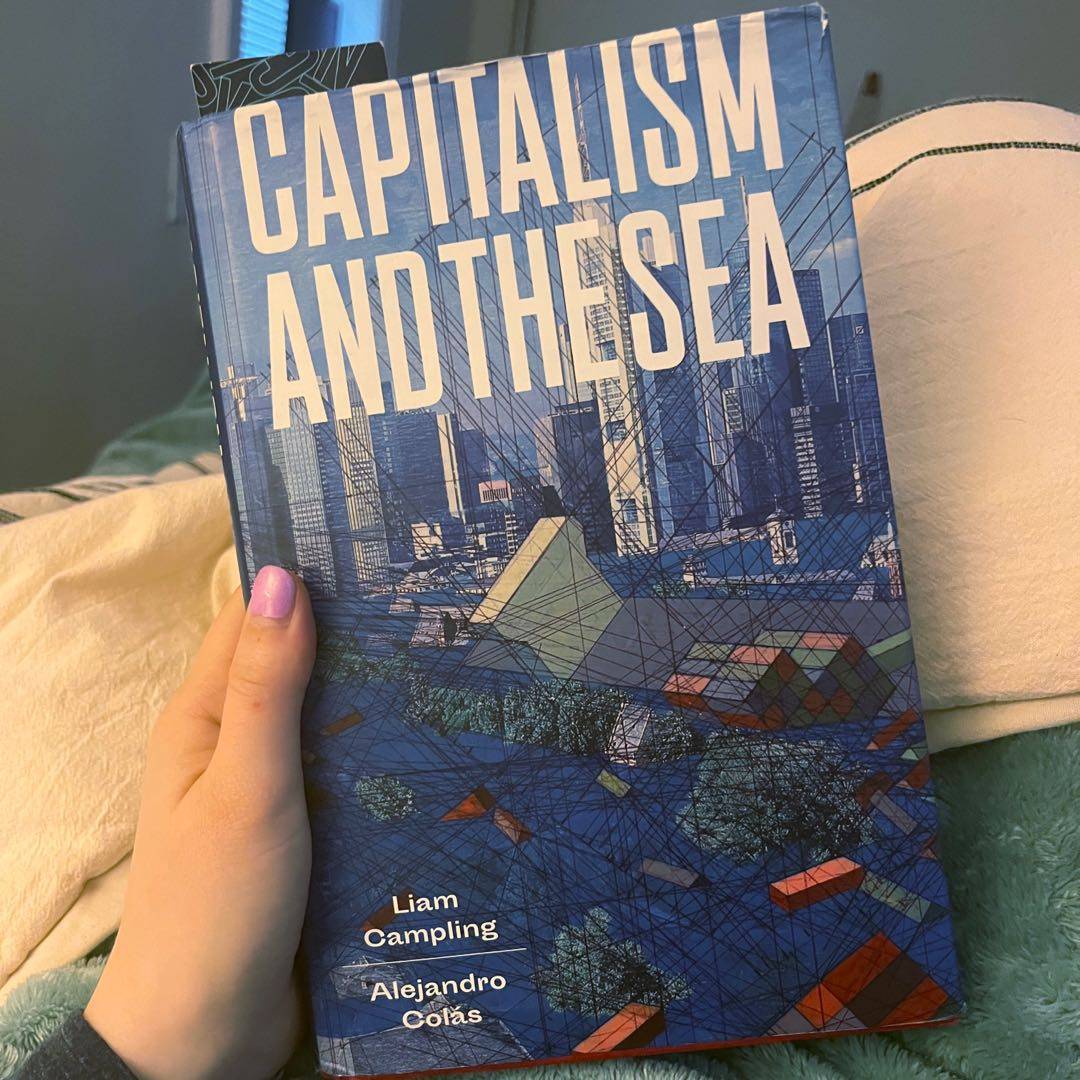
Finally done 😪 I was so excited to read this, especially after Moby Dick, but it ended up feeling underwhelming and tedious. There was a lot of interesting information, just not presented in the most interesting way. Ready to move on to something new.
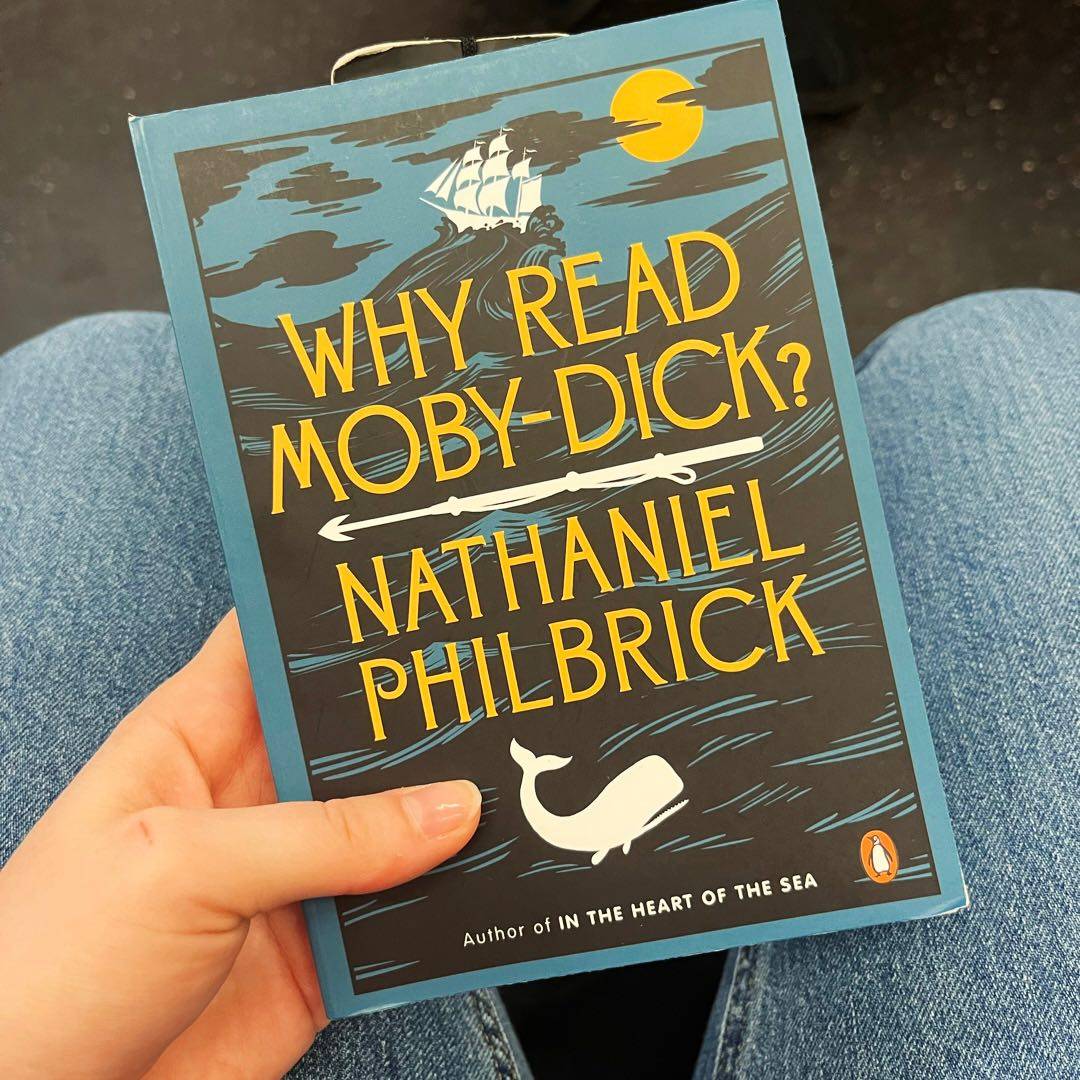
My dad got me this little book for my birthday, when I was about 3/4 of the way done with Moby Dick. I‘ve been really enjoying reading both contemporary & modern reviews of the book. It‘s interesting to see which themes each reviewer emphasizes, & which lines stand out as universally significant. This was a nice, quick read!
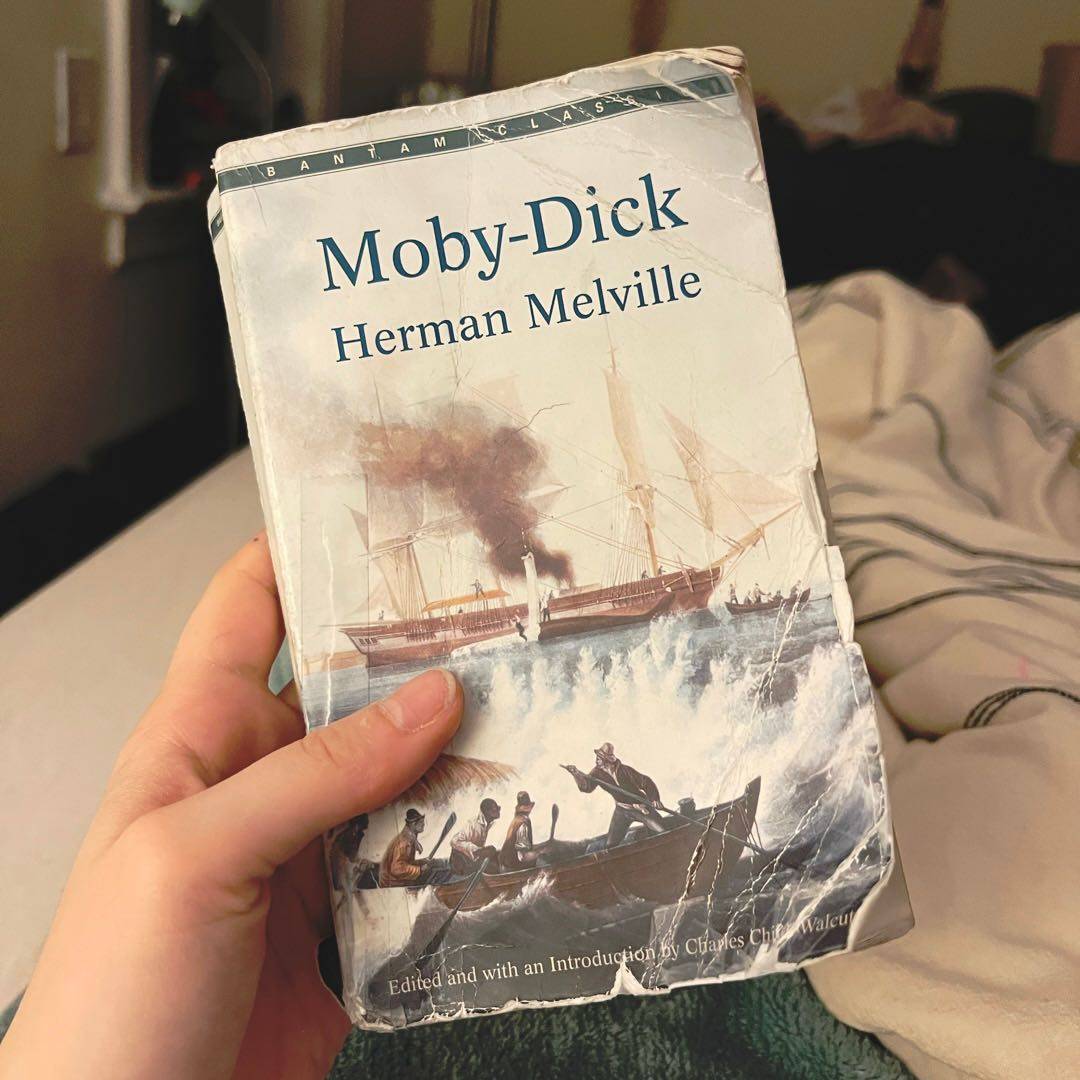
Wow. After 4 months, I‘m finally done. I‘ve never taken this long to finish a book, but I‘m glad I took my time & annotated so thoroughly. D.H Lawrence was right, it is “one of the strangest and most wonderful books in the world.” 🌟5/5🌟
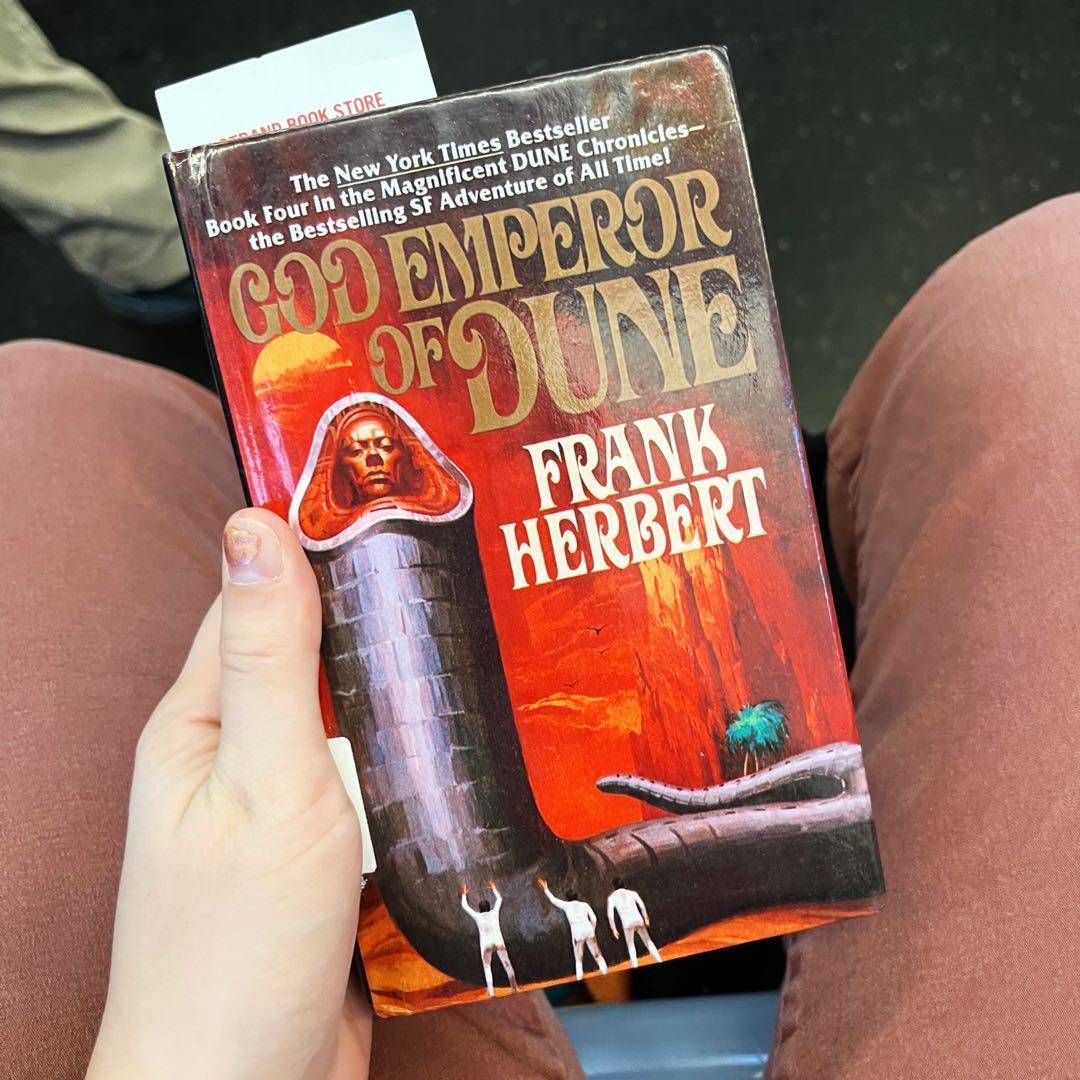
I really have Stockholm Syndrome with these books lol. I haven‘t really thought any of the sequels were particularly good, but alas! I‘m too invested in the lore and charmed by Herbert‘s Known Universe to quit. An interlude… and then on to book 5.
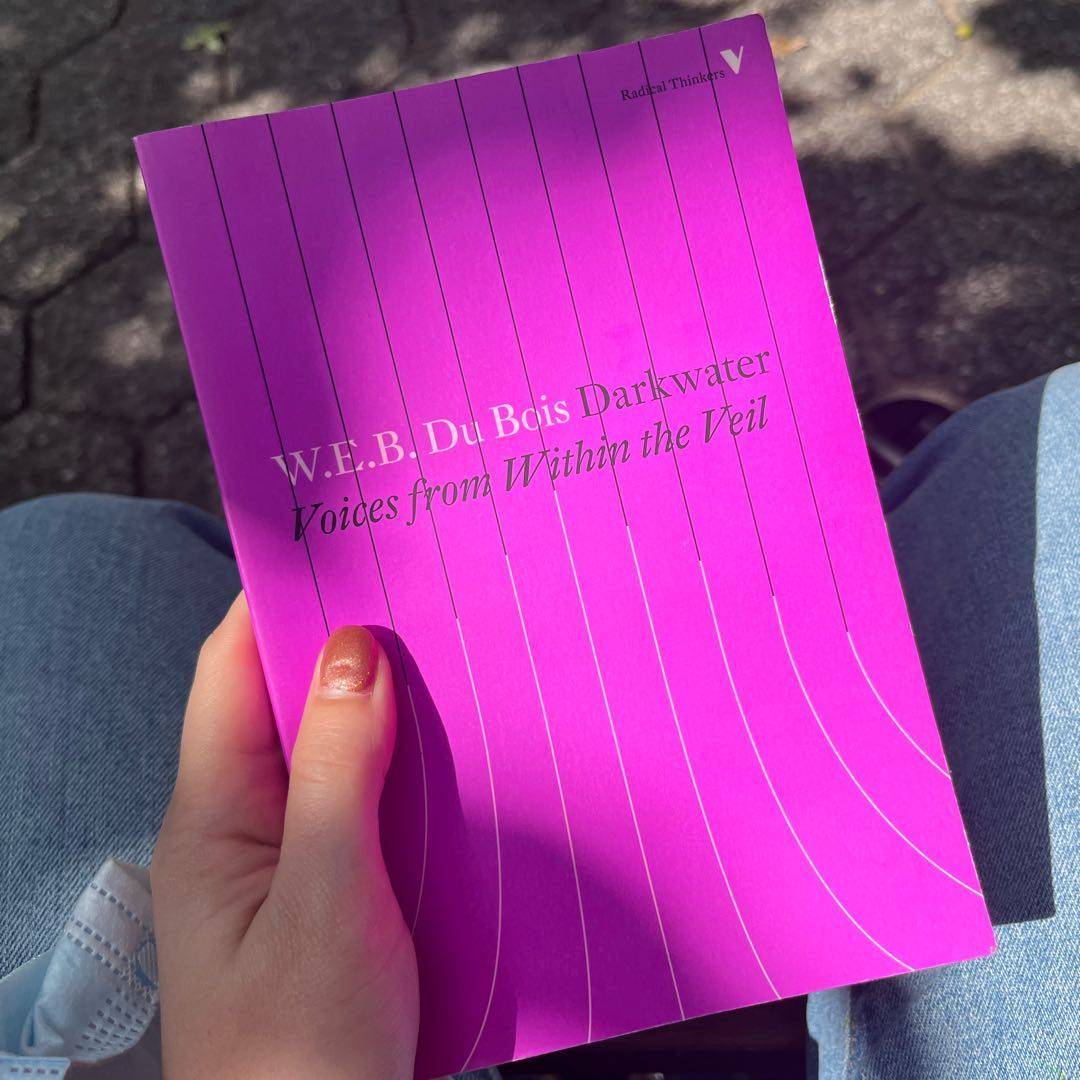
My first Du Bois! Darkwater is difficult to describe, as it is a combination of sociological essays, prose, poetry and prayer— but it is certainly a work of art. I really enjoyed it and look forward to reading Black Reconstruction after finishing Marx‘s Capital.
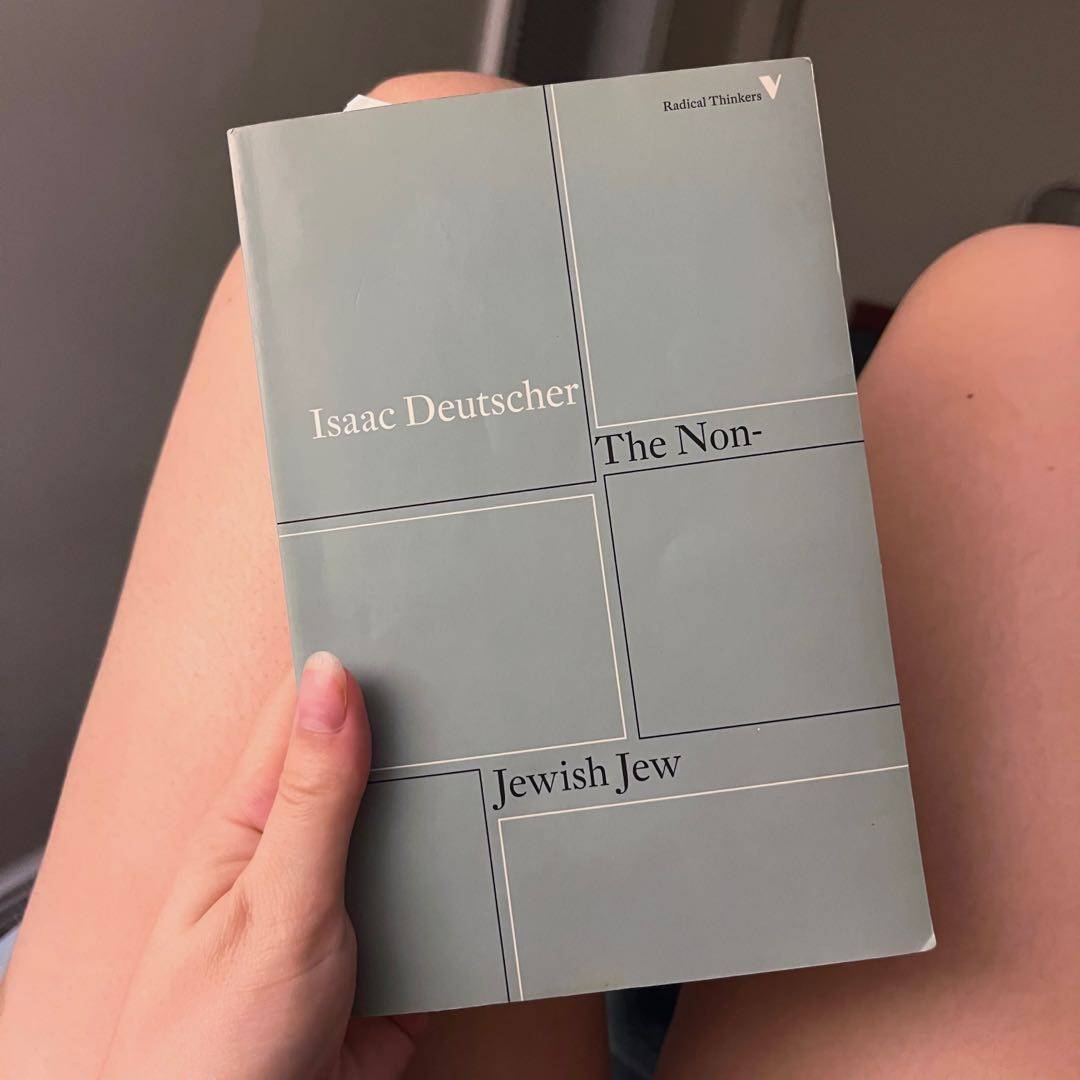
Glad that I finally read this book after a few abortive attempts. The first essays, “The Non-Jewish Jew” and “What is a Jew?” deeply touched me, which made it all the more shocking how nauseating I found “Israel‘s Spiritual Climate” — though it seems that by 1967, Deutscher became at least somewhat more clear-eyed on Israel‘s reactionary character and position in the Middle East. Regardless, an important book.
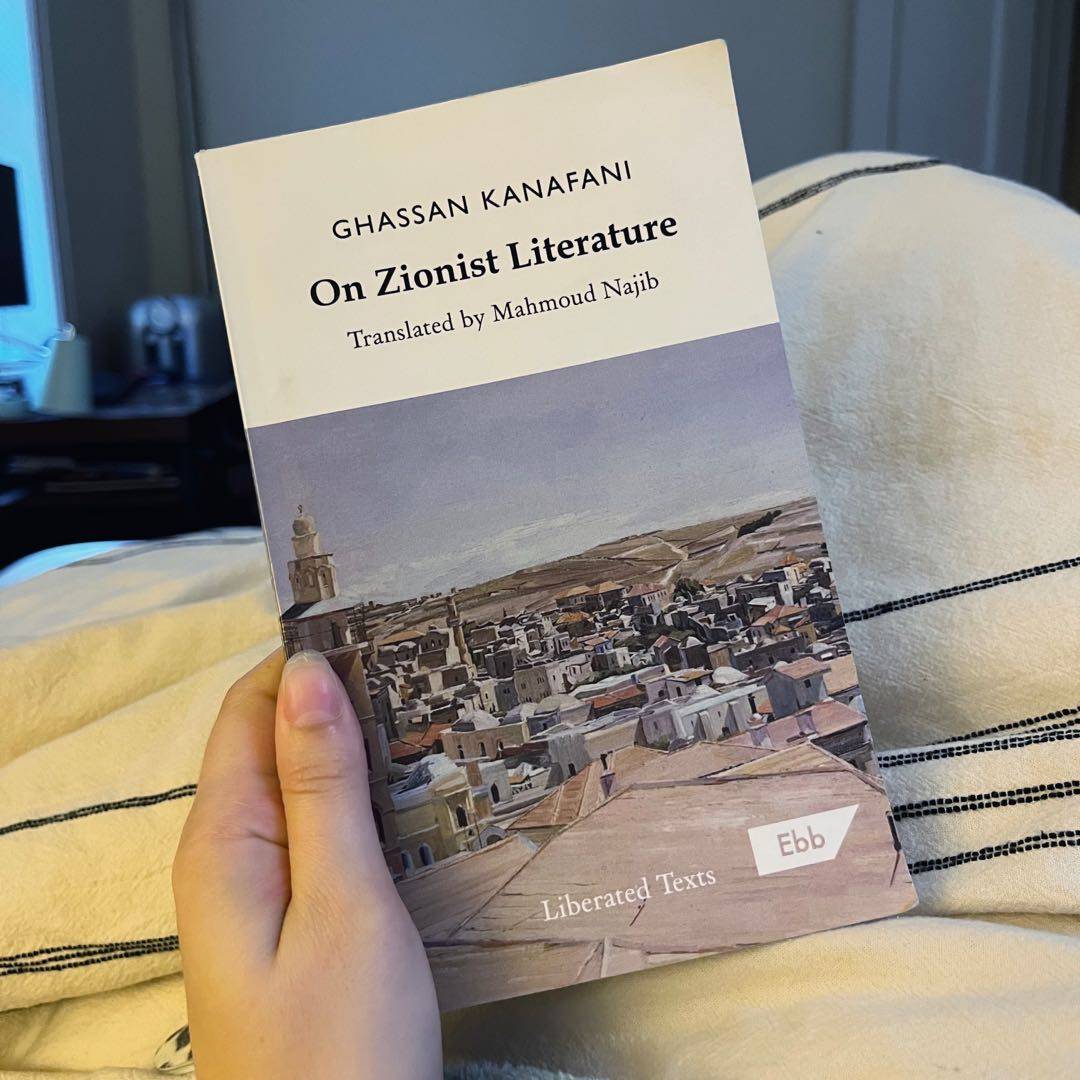
Recently translated for the first time in English, On Zionist Literature clearly demonstrates the author‘s erudition; however, there were many points that felt abrupt or incomplete. I feel it‘s safe to attribute this not to a weakness of Kanafani‘s, but rather (1) the limits of translation & (2) the great injustice of his early martyrdom. Who knows how he could have elaborated upon this work had he not been assassinated at age 36 by the Israelis?
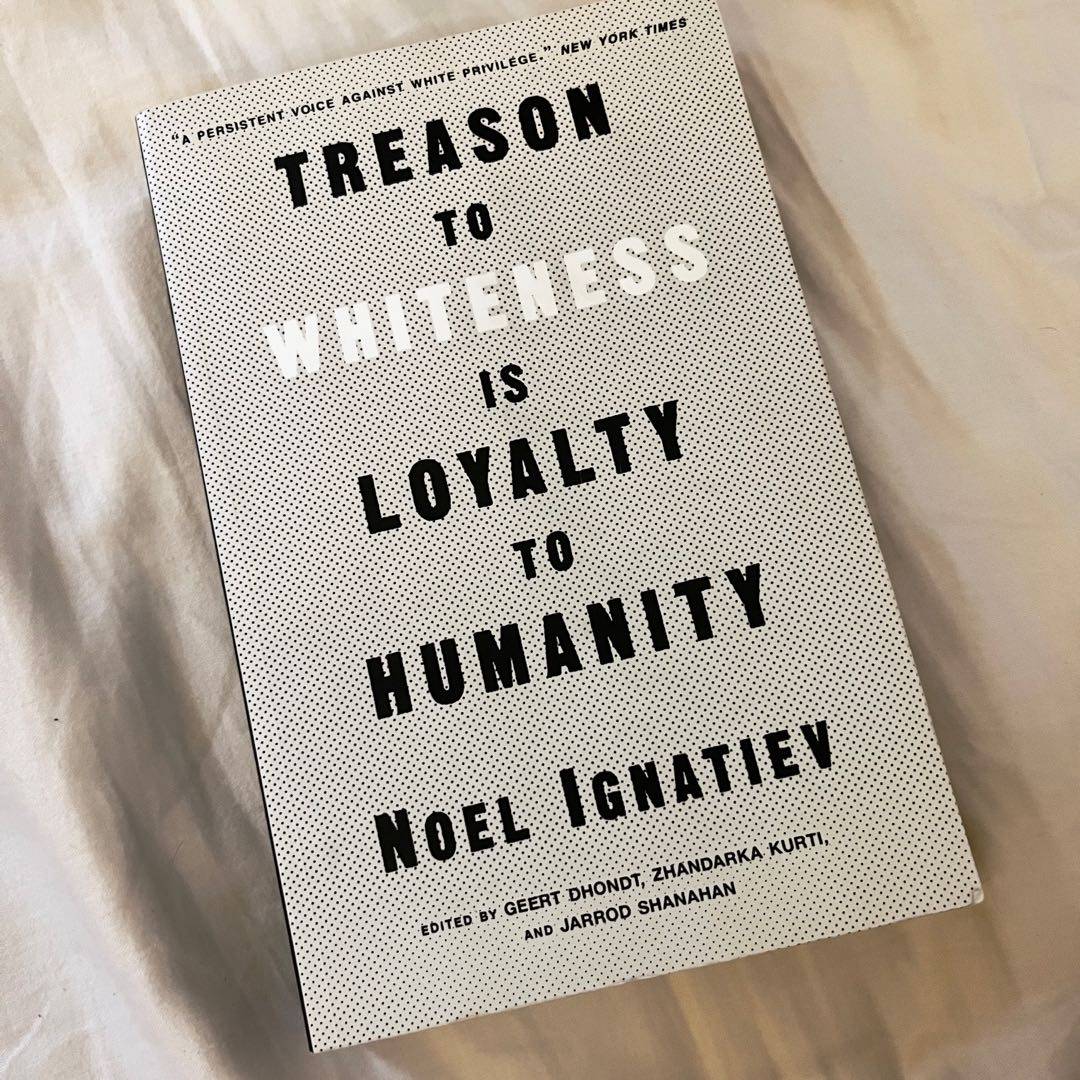
Cannot begin to describe the weight with which this book has pole-axed me, clarified my notions and commitments, and likely re-charted my life course in one way or another. What a phenomenal contribution Ignatiev has given us all in his life‘s work. 🌟5/5🌟